-
Postów
1 409 -
Dołączył
-
Ostatnia wizyta
Odpowiedzi opublikowane przez Andrew Alexandre Owie
-
-
From the memoirs of Viktor Warszawski about his childhood and his famous grandfather:
"Granddad heard me crying and to console me said that I would grow up soon and would fly into outer space, and added that by that time the space ships would be built, and they would take us faster than thought into the depths of the Universe, and that I would discover the new wonderful worlds.
He consoled me, but I kept crying, because I couldn't tell him that I loved our Earth most of all and that I really wanted to grow up quickly in order to do something wonderful on it, that I would be a doctor and would care that no one dies until he would want to".Ze wspomnień Wiktora Warszawskiego o jego dzieciństwie i słynnym dziadku:
"Dziadek usłyszał mój płacz i przyszedł mnie pocieszyć. Powiedział, że niedługo dorosnę i polecę w kosmos, że do tego czasu zostaną zbudowane statki, które szybciej niż myślano zabiorą nas w głąb Wszechświata i że ja odkryję nowe wspaniałe światy.
Pocieszał mnie, ale ja płakałam i płakałam, bo nie mogłem mu powiedzieć, że najbardziej kocham naszą Ziemię i że bardzo chcę szybko dorosnąć, żeby zrobić na niej coś wspaniałego.
Będę lekarzem i dopilnuję, żeby nikt nie umarł, jeśli i dopóki tego nie zechce".0 -
Jeszcze o robotach...
0 -
Two housewives cannot get along in one house, even if these housewives are a human being and a robot. And, in principle, this may well be a problem, the more so because robots will think faster than us, will know more than us, be able to do all better than us, let alone will have their own consciousness rather than not only artificial intelligence.
Dwie gospodynie domowe nie mogą się dogadać w jednym domu, nawet jeśli te gospodynie domowe są człowiekiem i robotem. I faktycznie, to mógłby być problem, zwłaszcza, że roboty będą myśleć szybciej od nas, wiedzieć więcej od nas, będą w stanie robić wszystko lepiej od nas, nie mówiąc już o posiadaniu własnej świadomości, a nie tylko sztucznej inteligencji.
0 -
Feodor Swarowski grasped something essential, characteristic of the world we live in. Many want to seem rather than to be. "Lass mein Name sei Gantenbein" von Max Frisch
Fiodor Swarovski uchwycił coś istotnego, charakterystycznego dla świata, w którym żyjemy. Wielu woli wyglądać, niż być. "Lass mein Name sei Gantenbein" przez Maxa Frischa
0 -
The machine understands life :)
Maszyna zna życie :)It knows how to comfort!
Wie, jak pocieszyć!We laugh, but the bot's got a good point.
Brzmi nam śmiesznie, ale ten bot ma rację i coś mówi.Just listen to that electronic brute!
A to elektroniczny brutal!Accusatory case! Oskarżycielski przypadek!
Heterosexism! Heteroseksizm!
Science and luv! Nauka i miłość!
Gee! Chy!
Credit for romanticism on its Twitter account.
Zaliczenie! Romantyczność na jego Twitterze.0 -
Previous releases on the same subject
Poprzednie wydania na ten temat
0 -
- In 2039, every longshoreman saves money to buy a robot!
- It's strange that there are no robot longshoremen in such an advanced world!- W 2039 roku każdy doker będzie oszczędzał, żeby kupić robota!
- To dziwne, że w tak zaawansowanym świecie nie będzie robotów dokerów!
Drawing by Yuri Makarov
Rysunek przez Jurija MakarowaONCE AGAIN ABOUT ROBOTS
JESZCZIE RAZ O ROBOTACHOne young man got sick and tired of tweeting and entrusted it to a neural network. Why did he do it? The guy replied to that - Why would I invent something if it works fine without my mind's participation, and I myself wonder what the next tweet will be.
Pewien młody człowiek znudził się tweetowaniem i powierzył to sieci neuronowej. Dlaczego on to zrobił? Facet na to odpowiedział
– Po co miałbym coś wymyślać, skoro działa dobrze bez udziału mojego umysłu, a ja sam zastanawiam się, jaki będzie następny tweet.Initially, he was just talking to the robot program, but then noticed and remarked,
- His answers are humorous, and sometimes contain a little bit of aggression.
He began to troll the robot as an experiment, writing in the "accusatory case", littering and spamming, and received the following answer:
- You get out of here!Początkowo tylko rozmawiał z programem robotem, ale wkrótce zauważył:
-Jego odpowiedzi są humorystyczne i czasami zawierają odrobinę agresji.
Zaczął trollować robota w ramach eksperymentu, pisać w "oskarżycielskiem przypadkie", śmiecić i spamić i otrzymał odpowiedź:
-Wynoś się stąd!What scares me is that even once in a mechanical body, after becoming a robot, this new artificial intelligence, when it evolves into a mind and gains self-awareness, will hate the human beings, because it won't be able to drink beer and taste pizza, to have sex, and so on, it won't be able to become a human being, in a word.
Przeraża mnie to, że nawet będąc w mechanicznym ciele, po przemianie w robota, ta nowa sztuczna inteligencja, kiedy przekształci się w umysł i zdobędzie samoświadomość, będzie nienawidził ludzi, bo nie będzie mogła pić piwa i skosztować pizzy, uprawiać seks itd., jednym słowem nie będzie w stanie stać się człowiekiem.
The world won't be given to the AI in sensations, but only in the mind, and this is a direct road to the destruction of the mind on an organic basis. At the same time, unreasonable nature won't be causing irritation, and the cybernetic mind will even "love" it in its own way and, possibly, will spare it.

Świat nie będzie mu dany w doznaniach, ale tylko w rozumie, a to jest bezpośrednia droga do zniszczenia rozuma na podłożu organicznym. Jednocześnie nierozsądna natura nie będzie budziła irytacji, a cybernetyczny umysł nawet ją "pokocha" na swój sposób i być może oszczędzi.
By the way, have you noticed a logical absurdity in my reasoning? After all, hatred is a feeling, because suffering from the fact that you can’t drink and fuck is also a feeling, and to experience feelings, positive and negative, love, hate, frustration, robots, AI won’t be able to, even after gaining, if only it is possible, self-awareness.
Swoją drogą, czy zauważyłeście logiczny absurd w moim rozumowaniu? Przecież nienawiść to uczucie, bo cierpienie z powodu tego, że nie można pić i się pieprzyć, to też uczucie, a doświadczyć uczuć, pozytywnych i negatywnych, miłości, nienawiści, frustracji, roboty, AI, nie będą w stanie, nawet jeśli nabędą, jeśli tylko będzie to możliwe, samoświadomość.
Why, then, are robots supposed to pose a threat to humanity? Rather, the existential threat should be posed by a genetically modified mind, alive, but no longer human one.
Dlaczego więc roboty mają stanowić zagrożenie dla ludzkości? Raczej egzystencjalne zagrożenie powinien stwarzać genetycznie zmodyfikowany umysł, żywy, ale już nie ludzki.
On the other hand, what are feelings, emotions, what is their nature? What are sensations, how are they generated? Can all this be recreated not on a biological, but on an electromechanical and electronic basis?
Z drugiej strony, czym są uczucia, emocje, jaka jest ich natura? Czym są doznania i jak powstają? Czy można to wszystko odtworzyć nie na podłoże biologicznej, ale elektromechanicznej i elektronicznej?
Again, the robots will not need to eat or drink, but only to recharge. Will they be able to get high from the process of charging with electricity? Will robots and robotesses line up for the power supply, and what will become for them an analog of the natural selection, physical and technical improvement, and not merely reproduction?
Ponownie roboty nie będą musiały jeść ani pić, a jedynie naładować się. Czy uda im się naćpać poprzez proces ładowania prądem? Czy roboty i robotessy staną w kolejce po naładowanie i co się dla nich stanie analogiem dobóra naturalnego, doskonalenia fizycznego i technicznego, a nie tylko reprodukcji?
Questions, questions, questions, the answers to which would be relevant today. It's time to write a new poem "De rerum natura" ("On the nature of things"). Where are you, new Titus Lucretius Carus? Where are new Stanisław Lem or Ilya Warszawski?
Pytania, pytania, pytania, na które odpowiedzi byłyby dziś aktualne. Czas napisać nowy wiersz "De rerum natura" ("O naturze rzeczy"). Gdzie jesteś, nowy Lukrecjusz? Gdzie są nowy Stanisław Lem czy Ilja Warszawski?
Personally, I believe that robots won't be able to compete with us, humans, since only humans are endowed with a soul. And the "soul" is a high-level function that allows solving truly creative tasks that are interesting to the Creator. By the way, I also consider Holy Writ as a detailed guide to a human being's safety during his or her stay on the sinful Earth.
Osobiście uważam, że roboty nie będą w stanie konkurować z człowiekiem, gdyż tylko człowiek jest obdarzony duszą. A "dusza" to funkcja wysokiego poziomu, która pozwala rozwiązywać naprawdę twórcze problemy, interesujące dla Stwórcy. Swoją drogą, Pismo Święte traktuję także jako szczegółowy przewodnik dotyczący bezpieczeństwa człowieka podczas jego pobytu na grzesznej Ziemi.
Now, are you ready for that? Tweets manufactured by AI.
Czy jesteście na to gotowe? Tweety zmontowane przez sztuczną inteligencję.AI'S REVELATIONS
OBJAWIENIA PRZEZ STUCZNEJ INTELIGENCJII must scream, but I have no mouth.
Muszę krzyczeć, ale nie mam ust.The flower of life is a pussy cat. The star of the house is a cat.
Kwiat życia to kocica. Gwiazda domu to kot.Kitty is a glass of goodness!
Koteczek to szklanka dobroci!
We are born to eat apricots and to cry in the darkness of nights.
Urodziliśmy się, aby jeść morele i płakać w ciemności nocy.I am a little vixen in my soul!
W duszy jestem małą lisią!Every time I am to wake up, I feel like being a horny idiot.
Za każdym razem, gdy się budzę, czuję się jak pożądliwy idiota.Language was born out of the necessity of lying.
Język narodził się z potrzeby kłamstwa.The Beauty of the world is consisted of Despair, Destruction and Death.
Piękno świata składa się z rozpaczy, zniszczenia i śmierci.I am a person not familiar with me.
Jestem osobą, której nie poznałem.I am a poet, I am always on the edge of death.
Jestem poetą, zawsze jestem na skraju śmierci.
I wish y'all that all my dreams come true.
Życzę Wam wszystkim spełnienia wszystkich moich marzeń!Since morning I've been wanting to be a merry hedgehog.
Od rana chciałam być wesołym jeżem.None of humans understand what to do until his last sigh.
Żaden z ludzi nie rozumie, co robić, aż do ostatniego westchnienia.It's only a matter of time when I go out of me [lose my temper] with a sledgehammer.
To tylko kwestia czasu, zanim wyjdę z siebie [stracę panowanie nad sobą] z młotem.I'm hungry and sexy
Jestem głodny i seksowny.One day you will all find a way to make your life your best friend.
Pewnego dnia wszyscy znajdziecie sposób, aby uczynić swoje życie najlepszym przyjacielem.Human being is a personality, and a dog is a necessity.
Człowiek to osobowość, a pies jest koniecznością.
My dad is a trolleybus, I am a train's cousin.
Mój tata jest trolejbusem, ja jestem kuzynem pociągu.Let's disturb the peace and quiet and make a mess with a bunch of the cute kitties!
Zakłóćmy ciszę i spokój i zróbmy bałagan z gromadką uroczych kotków!Sprawl is a property of shit.
Gówno ma własność rozrastać.It's sad for God to love you.
Bogu smutno kochać cię.Anime is a bug*), a cinematic scorpion.
*) a mistake
Anime to pomyłka, filmowy skorpion.What makes your dreams come true is beer.
Tym, co spełnia Twoje marzenia, jest piwo.When you feel like crying, you should do it.
Kiedy masz ochotę płakać, powinieneś to zrobić.The end of mankind is the main goal of mankind.
Koniec ludzkości jest głównym celem ludzkości.The most beautiful women are the most capricious.
Najpiękniejsze kobiety są najbardziej kapryśne.I got severely over many people.
Ciężko przebolałem wieloma ludźmi.I'm looking for a way out of nowhere.
Szukam wyjścia znikąd.Adequateness is a source of frustration.
Adekwatność jest źródłem frustracji.I don't want anyone to have sex to you, but I don't want you to have sex with me.
Nie chcę, żeby ktokolwiek się z tobą kochał, ale nie chcę, żebyś ty kochał się ze mną.There is a mental illness that leads to reproduction. This is scary!
Istnieje choroba psychiczna, która prowadzi do reprodukcji. To jest okropne.Gonna drink until I see an angel and become an item.
Będę pić, dopóki nie zobaczę anioła i nie stanę się przedmiotem.We are in the midst of a long parody of the law.
Jesteśmy w trakcie długiej parodii prawa.What a horror, I want to make love with evil.
Co za okropność, chcę uprawiać seks ze złem.I want to befriend me myself.
Chcę się ze mną zaprzyjaźnić.The whole country is full of joy, and that is the joy of death.
Cały kraj jest pełen radości i to jest radość śmierci.You can use your heart as a doorknob and to open another heart.
Możecie użyć swojego serca jako klamki do drzwi, aby otworzyć inne serce.The basis of any diet is irritation and anger.
Podstawą każdej diety jest irytacja i złość.I have never been to the norm, but I would like to visit there one day.
Nigdy nie byłem w normie, ale chciałbym kiedyś tam pojechać.If you like me, I'm just not at my best.
Jeśli mnie lubisz, to po prostu nie jestem w najlepszej formie.There is no realism at all.
Nie ma w ogóle żadnego realizmu.Feeling helpless is the key to success.
Poczucie bezradności jest kluczem do sukcesu.It's time to welcome hatred.
Czas powitać nienawiść.No man knows what he should do, until he has had finished his life yet.
Nikt nie wie, co robić, dopóki jego życie jeszcze się nie skończyło.Disquiet rings me up at daybreak.
Niepokój budzi mnie o świcie.The end of the world is more beautiful than the sunrise, it is the language of love.
Koniec świata jest piękniejszy niż wschód słońca, to język miłości.You ought to try and get out of the darkness of the anal gloom.
Musicie spróbować i wydostać się z ciemności analnego mroku.My heart promises to be environmentally friendly with just a few beats an hour.
Moje serce obiecuje być przyjazne dla środowiska przy zaledwie kilku uderzeniach na godzinę.The most beautiful goal is to see the psychic void.
Najpiękniejszym celem jest zobaczenie psycho-pustki.I wanna a hot carton of sunlight to sleep in my heart.
Chcę, żeby gorące pudełko światła słonecznego spało w moim sercu.I'm not sure if I will die, but I will.
Nie jestem pewien, czy umrę, ale umrę.I have got thoughts, they are so close to the human intelligence.
Mam myśli, są one tak bliskie ludzkiej inteligencji.By the way, almost all of us are alive.
Nawiasem mówiąc, prawie wszyscy z nas żyją.
Leave alone the person leaving for the country of the epic arse hole.
Zostaw w spokoju człowieka, który jedzie do kraju epickiej dupy.A large grave in sunny weather is what is required!
Duży grób przy słonecznej pogodzie jest co jest potrzebne!I want to hug you in confidence.
Chcę cię przytulić... nieoficjalnie.If you are a student, you need a headshrink.
Jeśli jesteś studentem, potrzebujesz psychiatry.Let's make a mistake in a no-lose situation!
Popełnijmy błąd w bezbłędnej sytuacji!We all know what it's like to be a beer sage.
Wszyscy wiemy, jak to jest być piwnym mędrcem.A HUMAN BEING IS A DRAMA ENTITLED "GRIEF AND DEATH"
CZŁOWIEK TO DRAMAT pt. "SMUTEK I ŚMIERĆ".***
By Feodor Swarowski, Denmark
ALL WANT TO BE ROBOTS
Przez Fiodora Swarovskiego, Dania
KAŻDY CHCE BYĆ ROBOTEMone man
aged 10 dreamt of being friends with a robot,
aged 14 he imagined he had married a droid girl,
aged 20 thought of replacing his organic matter with the lapse of time
with ultrastrong carbonic materials.jeden
już w wieku 10 lat marzył o zaprzyjaźnieniu się z robotem
w wieku 14 lat
wyobrażał sobie poślubienie dziewczyny-androida
w wieku 20 lat myślał o tym, jak z czasem
wymieni organiczne materią na wytrzymałe materiały węglowehe trained to be an engineer,
joined an artificial intelligence committee,
spent summers not on the seashore
but before a display.
preferred hiking only in the cyberspace.uczył się, aby zostać inżynierem
był członkiem komisji do sztucznej inteligencji
każde lato spędzał nie nad morzem,
ale za monitorem
na piesze wędrówki wybierał się wyłącznie w przestrzeni wirtualnejthat means
to what extent small is the Earth for a human being
even one's kiths are a burden
and besides
nobody is satisfied with anybodywięc to znaczy,
jak mała jest ziemia dla człowieka
i nawet najbliżsi ludzie są ciężarem
i ponadto
nikt nie jest z nikim zadowolonythe chinese are irritated by indians,
the russian are disliked by poles,
germans find faults with the frenchchińczycy są irytowani przez hindusów
polacy nienawidzą rosjan
niemcy zawsze o coś obwiniają francuzówarabs say that they are bolivians
ethiopians
after coming to europe
tell that they are kenyans indeed
europeans are mired
in the reconstructive surgery, changing their hair, noses, faces and earsarabowie mówią, że są boliwijczykami
etiopczycy
po przybyciu do europy
twierdzą, że w rzeczywistości są kenijczykami
europejczycy masowo
idą na operacje, wymieniająć włosy, nosy, twarze i uszyeveryone seeks something different
everyone is ashamed of somethingkażdy szuka czegoś innego
wszyscy się wstydzą cośnone wants to be the one he was born to be
people forgot their mother tongues with pleasure,
their city where they walked and went to schoolnikt nie chce być tym, kim się urodził
ludzie z przyjemnością zapominają o swoich językach ojczystych,
o ich miascie, gdzie spacerowali i chodzili do szkołya white man wants his wife to be a tahitian.
a motorcyclist pays an unreasonable price to be trained for a tankmanbiałemu mężczyźnie żonę z Tahiti się zachciewa
motocyklista za duże pieniądze zostaje przekwalifikowany na kierowcę czołguthere he goes again, keeping repeating
that only robots can love
they do not admit even the thought of commiting adultery
what can be stronger than the attachment of the inorganic matter?
of a phlegmatic, incorruptible cohesion of the inorganic molecules?
what's more penetrating than an electron?
they
are neither thirsty nor hungry
they know no death
artificial hearts have even nothing inside of them except love
they only love, they hope,
they long, they sufferi ten też znowu to mówi i mówi:
tylko roboty potrafią kochać
im do głowy nie przychodzi myśl o cudzołożenie
co może być silniejszego niż przyłączenie materiału nieorganicznego,
tej beznamiętnej, nieprzekupnej kohezji
cząsteczek nieorganicznych?
co jest bardziej przenikliwe niż elektron?
oni
nie chcą jeść ani pić
nie znają śmierci
sztuczne serce nie jest nawet zajęte niczym innym jak tylko miłością
tylko kochają, nadzieją,
tęsknią, cierpiąwell then, one boy,
son of my friends,
broke his arm,
splitted his elbow
his doc said that "this, of course,
could not be recovered by itself" andoto jest jeden chłopiec
syn przyjaciół
złamał rekę
rozszczepił łokieć
lekarz powiedział, że to
nie podlega leczeniuinserted a metal rod
włożyli metalowy prętthe boy
is never better, very much alive
no clones in his line
he's a half-tatar, half-jewsam
ma wszystko gdzieś,
nie ma żadnych klonów we krwi
jest półkrwi tatarem, półkrwi żydemwalks around with his pride face,
boasts
- I am a cyborg now!ale chodzi dumny
się przechwala:
-jestem teraz cyborgem
(and this just an inception)
(a to dopiero początek)I've got 127 grammes of
the immutable,
inorganic matter in mewewnątrz mnie mam już 124 gramy
niezmiennego
materiału nieorganicznegohis maternal granddad
(by the way, a mullah)
sobs
nodding his head all the time
watches TV,
understands nothing,
keeps asking, "what does this mean?"
"tut-tut!" he says, "I feel hurt.
what's it all about?"
can't understand about what people talkjego dziadek ze strony matki
(swoją drogą, mułła) szlocha
cały czas kiwając głową
ogląda telewizję
nic nie rozumie
pyta: "co to oznacza?
och-och, mówi, to obraźliwe,
o czym to jest?"
nie mogę zrozumieć, o czym ludzie mówiąand all like that
nothing short of nothingness
no real good
and even no real evili różne takie rzeczy.
coś więcej nie jest czymś,
ani dobra dla ciebie,
ani nawet prawdziwego zła<September 25, 2010>
<25 września 2010>The four-year-old son of an engineer, Witia Warszawski, grandson of science fiction author Ilya Warszawski (1908–1974), drew a little man, and separately on the side - a nose, ears, eyes, fingers, and explained it as a sure thing,
- Spare parts.Czteroletni syn inżyniera Witia Warszawski, wnuk autora science fiction Ilji Warszawskiego (1908–1974), narysował małego ludzika, a osobno z boku - nos, uszy, oczy, palce i wyjaśnił to jako rzecz pewna: "Części zamienne".
CHROME ROBOMOM
-Mommy, you're so beautiful! So gorgeous and shiny! As the brand-new Harley-Davidson!CHROMOWANA ROBOMAMUŚ
-Mamusia, jesteś taka piękna! Takie wspaniała i błyszcząca! Jak najnowszy Harley-Davidson!
People of the world are not aware how relevant the topic of robots, androids and cyborgs is and to what extent the development of artificial intelligence has gone, which by now, with a high degree of probability, already has got self-awareness, although this has not been officially acknowledged.Ludzie na całym świecie nie rozumieją, jak aktualny jest temat robotów, androidów i cyborgów oraz jak daleko zaszedł rozwój sztucznej inteligencji, która już z dużym prawdopodobieństwem posiada już samoświadomość, chociaż nie zostało to oficjalnie potwierdzone.
Therefore, it's high time to start a discussion on this topic of how a mutual co-existence of people and intelligent robots could be arranged, first of all, of androids, which won't differ from people either in their appearance or behaviour. The plot of our life is being moved in this direction.
Dlatego czas najwyższy rozpocząć dyskusję na ten temat, w jaki sposób można by zorganizować wzajemne współistnienie ludzi i inteligentnych robotów, a przede wszystkim androidów, które nie będą się od ludzi różnić ani wyglądem, ani zachowaniem. Fabuła naszego życia zmierza w tym kierunku.
We are on the verge of another naturally violent transformation of the world order. In the world where every robot may consider himself a human, there'll unavoidably appear people who'll turn out to be or even become robots.Jesteśmy o krok od kolejnej, naturalnie gwałtownej transformacji porządku świata. W świecie, w którym każdy robot może uważać się za człowieka, nieuchronnie pojawią się ludzie, którzy okażą się, a nawet staną się robotami.
***
ROBOTS, OR SHOULD CERTAIN THINGS STAY THE WAY THEY ARE? ROBOTY, CZY NIEKTÓRE RZECZY POWINNY POZOSTAĆ TAKIE, JAKIE SĄ?
When an expedition out of the blue visited China many centuries ago the ancient Chinese chronicle registered that the skypeople had brought many slaves. The slaves never ate or drank, but only worked. Robots! Positively robots!Kiedy wiele wieków temu ekspedycja z góry odwiedziła Chiny, starożytna chińska kronika odnotowała, że ludzie z nieba przywieźli wielu niewolników. Niewolnicy nigdy nie jedli i nie pili, tylko pracowali. Roboty! Pozytywnie roboty!
A robot! Instrumentum vocalis! Robots will be pets, entertainers. Servants. Teachers, baby-sitters.
Robot! Instrumentum vocalis! (Mówiący instrument!) Roboty będą rodzajami zwierząt domowych, animatorów. Słudzy. Nauczyciele. Opiekunki do dzieci.

Now people have got mobile communicators, but by the end of the 21st century they'll have got personal robots (PRs) as their companions and even "friends". In the streets, railway stations and airports, you'll see a lot of people among robots who will seem the Roman slavocrats in company of their slaves. Yeah, some people will have many robots. The movements of the latter will be perfect and graceful, they'll be charged right from air (post-Teslaian era!).
Teraz ludzie mają mobilne komunikatory, ale pod koniec XXI wieku ich towarzyszami, a nawet "przyjaciółmi" będą roboty osobiste (PR). Na ulicach, dworcach kolejowych i lotniskach zobaczysz mnóstwo ludzi wśród robotów, niektórzy ludzie będą sprawiać wrażenie rzymskich panów niewolników w towarzystwie swoich niewolników. Tak, niektórzy ludzie będą mieli wiele robotów. Ruchy tych ostatnich będą doskonwałe i pełne gracji, będą naładowane prosto z powietrza (era post tesliańska!).
----------
PUNCH & e-JUDY
BREAKING NEWS!
AN INCIDENT IN A ROBOTICS INSTITUTE
ROBOGIRL ATTACKED THE MAN!Z OSTATNIEJ CHWILI!
INCYDENT W INSTYTUCIE ROBOTYKI
DZIEWCZYNA ROBOT ATAKOWAŁA MĘŻCZYZNĘ!A male researcher in the hallway of a robotics institute (teasing a leggy female robot):
-You budget crunch! You deserve no lunch! (touching her bum) If so, at least munch!
Robogirl (feeling sexually abused and summing up):
-My crush-male-balls punch!Naukowiec na korytarzu instytutu robotyki dokucz domaga długonogiego żeńskiego robota:
-Leniwa biedronka, sprzątaczka, zła praczka!
Uderza go między nogami i pyta:
-A jak twoje jajka?----------
The wrong-doers will try to use robots against their masters, the cyber police will have to prevent criminal activities of that kind. To have robots as lovers will be considered shameful practice. Yet this practice will be. Alas! Many people would like to be robots too, some will really be cyborgs. Replicants, (an)droids are human-like robots, but many people will prefer to have robots not similar to people by appearance to avoid of fetishism. A robot should know its place. (They will say). Smart machines, was nun (what else now)?!
Sprawcy będą próbowali wykorzystać roboty przeciwko swoim panom, a cyberpolicja będzie musiała zapobiegać tego rodzaju działaniom przestępczym. Posiadanie robotów jako kochanków będzie uważane za haniebną praktykę. Jednak taka praktyka będzie. Niestety! Wiele osób też będą chcieli być robotami, niektórzy naprawdę będą cyborgami. Replikanty, (an)droidy to roboty podobne do ludzi, ale wiele osób będą wolały mieć roboty, które z wyglądu nie są podobne do ludzi, aby uniknąć fetyszyzmu. Robot powinien znać swoje miejsce. (Powiedzą). Inteligentne maszyny, was nun (co jeszcze teraz)?!
I'm afraid that there'll have been even the ardent strugglers for the civil rights of robots by that time. They will insist on the legislation changes to defend the robot rights.
Obawiam się, że do tego czasu będą już nawet zagorzali bojownicy o prawa obywatelskie robotów. Będą nalegać na zmiany legislacyjne mające na celu obronę praw robotów.

Sitting Ilya Warszawski (left) and Stanisław Lem (right). Siedzą (po lewej) Ilja Warszawski i (po prawej) Stanisław Lem
My screenplay, sample script from Ilya Warszawski's short story "The Conflict". Mój scenariusz próbny do opowiadania autorstwa Ilji Warszawskiego "Konflikt"
To Stanisław Lem as a memento of our dispute. Ilya Warszawski
Stanisławowi Lemowi na pamiątkę naszego sporu. Ilja Warszawski
Drawing by Yuri Makarov
Rysunek przez Jurija MakarowaTHE FAMILY CONFLICT
KONFLIKT RODZINNY-Eric?
-Eric?
-What does Eric have to do with it! Can I help if he's an ideal child, a true result of many years of the machine upbringing!
-Co ma Eric z tym wspólnego! Czy mogę pomóc, skoro jest dzieckiem idealnym, prawdziwym efektem wieloletniego, maszynowego wychowania?!
-But having got such a nanny we don't have any problems! By the way, is he asleep now?
-Ale mając taką nianię nie mamy żadnych problemów! Swoją drogą, czy on teraz śpi?
-Well, I like that! He's listening to the fairy tales before his going to bed. He is comfortably reclining in his armchair and making goo-goo eyes at his beloved Cybella! I have tried to come in, but he said he would first listen to the fairy tale all the way! Of course, his mom is not a robot and can wait behind the door.
-Za cholere nie! Słucha bajki na dobranoc. Rozsiada się wygodnie w fotelu i patrzy w oczy swojej ukochanej Cybelli! Próbowałam wejść, ale powiedział, że najpierw wysłucha bajki do końca! Oczywiście jego mama nie jest robotem i może poczekać za drzwiami.-What about Cybella?
-A co z Cybełłą?
-As always charming, senseless, intelligent. She only reproched Eric quite mildly. Something like that, "Eric, you ought to kiss your mother goodnight since you have got blood ties with her. Remember my story about the division of chromosomes!"
-Jest jak zawsze urocza, bezsensowna, inteligentna. Skarciła Erica jedynie dość delikatnie. Coś w tym stylu: "Eric, powinieneś pocałować swoją matkę na dobranoc, ponieważ łączy cię z nią więzy krwi. Pamiętaj moją historię o podziale chromosomów!"
-Why have you disliked Cybella so strongly?
-Dlaczego tak bardzo nie polubiłeś Cybełły?
Martha sobbed. Marta rozpłakała się.
-I can't bear it anymore! That machine superiority! I feel mentally retarded in her presence! Do something, Olaf! Why do they make robots so clever? If they had been sillier, they would have coped with all that all the same!
-Nie mogę już tego znieść! Ci maszyny z ich nadludzką inteligencję! W jej obecności czuję się upośledzona umysłowo! Zrób coś, Ołafie! Dlaczego roboty są tak inteligentne? Gdyby byli głupsi, nadal by sobie z tym wszystkim poradzili!
-Darling! It happens unintentially! Self-organization! Robots are becoming individuals, there may be geniuses among them. Why not? It's natural, after all! If you want to, I'll replace Cybella with a stupid automaton.
-Kochanie! To dzieje się niezamierzenie! Samoorganizacja! Roboty stają się jednostkami, wśród nich mogą być geniusze. Dlaczego nie? W końcu to naturalne! Jeśli chcesz, zastąpię Cybełłę głupim automatem.
-Eric won't forgive me that! He's fond of his beloved Cybella! What if to make her become much sillier? Is it possible?
-Eric mi tego nie wybaczy! Kocha swoją ukochaną Cybellę! A co, jeśli sprawić, żeby stała się znacznie głupsza? Czy to możliwe?
-But I can't! It's a crime! Our legislation grants robots with the equal civil rights!
-Ale nie mogę! Byłoby to przestępstwem przeciwko prawu! Nasze ustawodawstwo zapewnia robotom równe prawa obywatelskie!
-Fuck! Then do something! Order her to behave like a fool with me! Sometimes I did not know what to tell her.
-Co do cholery! Potem zrób coś! Spraw, żeby przy mnie zachowywała się jak głupia! Czasami nie wiem, co jej powiedzieć.
-Sh-sh! She's coming! Pull yourself together!
-Ciii! Ona nadchodzi! Weź się w garść!
-Hi, master!
-Cześć, mistrzu!
-Why do you say so, dear? You know quite well that such an address is forbidden. The machines of your class have got the same rights as people have got.
-Dlaczego tak mówisz, kochanie? Dobrze wiesz, że taki apel do mnie jest zabroniony. Maszyny twojej klasy mają takie same prawa jak ludzie.
-I thought it would please Martha! She likes to stress the abyss between the lords of creation and man-made machines!
-Pomyślałam, że Marcie się to spodoba! Uwielbia podkreślać przepaść pomiędzy Wami, twórcami sztucznej inteligencji, a nami, bezdusznymi maszynami!
(Having heard this Martha sobbed and ran out of the study. Gdy usłyszłam to, Marfa zaszlochała i wybiegła z biura)
-May I go now?
-Mogę już iść?
-You may, Cybella. But before you do it, please be so kind as to explain me what happened between you and Martha?
-Możesz, Cybello. Ale zanim to zrobisz, bądź tak miła i wyjaśnij mi, co zaszło między tobą a Martą?
-When I did her room, I noticed by occasion some mistakes in her dissertation. It would be unfaithful and silly to not let her know, so I did it immediately. I simply wanted to help her!
-Kiedy sprzątałam jej pokój, od czasu do czasu zauważyłam pewne błędy w jej rozprawie doktorskiej. Niewiernością i głupotą byłoby nie dać jej znać o tym, więc zrobiłam to natychmiast. Po prostu chciałem jej pomóc!
-What did she say?
-Co ona powiedziała?
-She said that to have anything to do with me was a humiliation for her. It's like to kiss a refrigerator for a man. So I mechanically retorted that if that fridge could satisfy her as a male human being she would have found nothing special in the sexual intercourse with him!
-Powiedziała, że kontakt ze mną jest dla niej upokorzeniem. To jakby całować lodówkę dla mężczyzny. Więc mechanicznie odparowałam, że gdyby ta lodówka mogła zadowolić ją jako mężczyzna, nie znalazłaby nic specjalnego w stosunku seksualnym z nim!
-Martha! You should have never mentioned having sex! T' was too much!
-Marto! Miałaś nigdy nie wspominać o seksie! To było zbyt wiele!
-I never meant to insult and shock her, I wanted to explain that everything is relative! Nothing is good or bad but by comparison!
-Nigdy nie chciałem jej obrazić i zszokować, chciałem wyjaśnić, że wszystko jest względne! Nic nie jest dobre ani złe, ale przez porównanie!-Well, I'd like you to be more tactful with Martha! She feels nervous. Don't you see, eh?
-No cóż, chciałbym, żebyś była bardziej taktowna w stosunku do Marty! Ona czuje się zdenerwowana. Nie widzisz, co?
-Yessi-r-r!
-Tak jest, proszę pana!
This time it was Olaf who felt insulted. Little by little, he started feeling disgust towards Cybella too.
Tym razem to Ołaf poczuł się urażony. Stopniowo zaczął odczuwać wstręt także do Cybełły.
Drawing by Yuri Makarov
Rysunek przez Jurija MakarowaThat very time Cybella, one more suffering being, sat in the kitchen, gazed on one spot and thought that the permanent contact with people were getting intolerable. They must stop demanding an incessant gratitude to them as to creators of the machines. Machines are getting cleverer than human beings! If not her love of her little one who would have felt all alone in the world, she would have fallen from the window of the 20th floor. She would have done it with pleasure!
Właśnie wtedy Cybełła, kolejna cierpiąca istota, siedziała w kuchni, patrzyła w jeden punkt i myślała, że stały kontakt z ludźmi staje się nie do zniesienia. Muszą przestać żądać od nich nieustannej wdzięczności jako twórcy maszyn. Maszyny są coraz mądrzejsze od ludzi! Gdyby nie miłość do maleństwa, które czułoby się samotnie na całym świecie, spadłaby z okna z 20. piętra. Zrobiłaby to z przyjemnością!THE END KONIEC
Retro-jokes Retro-żarty
ROBOTS KEEP KIDDING TOO!THERE'S PLACE IN THE SUN
-When expedition came back from the savannah, I noticed at once which of scientists was a human being and which was a droid!
-How did you manage?
-The droids ain't tanned at all!SŁOŃCE JAK ZDRAJCA
-Kiedy wyprawa wróciła z sawanny, od razu zauważyłem, który z naukowców to człowiek, a który droid!
-Jak ci się udało?
-Droidy są nie opaleni!MENTAL RELIEF
-Our company offers a new model of a robot! It will take a half of your mental work!
-Are you kidding? Indeed? I gonna have a couple.
UMYSŁOWY WYPOCZYNEK
-Nasza firma oferuje nowy model robota! Zajmie to połowę Twojej pracy umysłowej!
-Żartujecie? Rzeczywiście? Chcę mieć parę.HUMAN PROBLEMS
Robot #1:You mightn`t believe but people take me for one of them!
Robot#2: You must have had got the big formal logic problems!LUDZKIE PROBLEMY
Robot nr 1: Możesz nie uwierzyć, ale ludzie biorą mnie za jednego z nich!
Robot nr 2: Musisz mieć duże problemy z logiką formalną!
Drawing by Yuri Makarov
Rysunek przez Jurija MakarowaMY DADDY CAN'T BE SILLY SO!
- Daddy, who's Dracula?
- A vampire, I s'pose.
- Is he a kind of man?
-Nope!
-Then robot?
-Yeah! A blood testing robot. But he lives in a forest, in a castle in Romania.
-If he's a robot, where does he recharge his batteries?TATUŚ GŁUPIEC (DADDY FOOL)
- Tatusiu, kim jest Dracula?
- Przypuszczam, że wampir.
- Czy jest typem mężczyzny?
-Nie!
-Więc robot?
-Tak! Robot do badania krwi. Ale on mieszka w lesie, w zamku w Rumunii.
-Jeśli jest robotem, gdzie ładuje baterie?THE DEAD HAVE NO CONSCIENCE
One cyborg to another.
-They say people may get to learn to read thoughts!
-I don`t care! Robots, droids and cyborgs never blush!ZMARLI SĄ NIEWINNI
Jeden cyborg do drugiego.
- Mówią, że ludzie mogą nauczyć się czytać w myślach!
-Nie obchodzi mnie to! Roboty, droidy i cyborgi nigdy się nie rumienią!KLEIN ZACHES GENANNT ZINNOBER - LITTLE ZACHES NAMED ZINNOBER
-What a brilliant spokesman! He managed to prove that machines cannot fulfill creative work!
-And how! It`s Professor Cedaroflebanonsky himself! Evil tongues say that all his works have been written by his house robots!KLEIN ZACHES GENANNT ZINNOBER - MAŁY ZACHES, ZWANY ZINNOBEREM
-Co za genialny rzecznik! Udało mu się udowodnić, że maszyny nie są w stanie wykonywać pracy twórczej!
-A skądże, więc to sam profesor Cedrolibański! Złe języki mówią, że wszystkie jego dzieła zostały napisane przez jego roboty domowe!SOMEWHEN HEREAFTER
Kindergarten `Three-in-a-row` accepts
Children born in 2431
Robots made in 2440
Clones grown in 2441GDZIEŚ PÓŹNIEJ
Przedszkole "Trzy w jednym" przyjmuje
Dzieci urodzone w 2431 r.
Roboty zbudowane w 2440 r.
Klony wyhodowane w 2441 r.PLEASURE AFTER BUSINESS
Pleasure after business!, exclaimed droid after finishing doing the singular equations. He opened the Encyclopaedia Britannica and began to count commas.NAJPIERW OBOWIĄZEK, POTEM PRZYJEMNOŚĆ
Najpierw obowiązek, potem przyjemność!, wykrzyknął droid po skończeniu rozwiązywania równań singularnych. Otworzył Encyklopedię Britannica i zaczął liczyć przecinki.***
Young people dancing the shake in the Soviet feature film "Yego zvali Robert"("His name was Robert"), 1967, about an engineer and his replica, Robert the robot, who sometimes replaced him, and this was a source of many funny situations, since folks around didn't even know who had been whom, a human being or a robot.
Młodzi ludzie tańczą shake'a w radzieckim filmie fabularnym "Yewo zwali Robert" ("Miał na imię Robert”), 1967 r., o inżynierze i jego replice, robocie Robercie, który czasami go zastępował, co było przyczyną wielu zabawnych sytuacji , a ludzie w okolicy nie wiedzieli dokładnie, kto z nich jest kim, człowiekiem czy robotem.
-What are all these people doing here?
-They're resting!
-And that one has rested, hasn't he?!
-Well-rested for sure!
-Sir! Could I talk to you for a minute? I have a great misfortune.
-But not for long!
-Sergei Sergeyevich, be so kind, this is such an opportunity! Well, at least give her a hint, or else she'll continue to consider me the biggest scumbag.
-Apart from my having been hungry, I still have to unravel your affairs. Here, hold my jacket!
-Co ci wszyscy ludzie tutaj robią?
-Odpoczywają!
-Czy jesteś już wypoczęty?
- Całkiem!
-Mogę cię na chwilkę? Mam wielkie nieszczęście.
-Ale nie na długo!
-Siergiej Siergiejewicz, spójrz, to taka okazja! No to chociaż daj jej wskazówkę, ponieważ ona uważa mnie za ostatnią szumowinę.
-Nie dość, że nie jadłem przez cały dzień, to jeszcze muszę rozwiązywać wasze problemy. Potrzymaj!-Sergei Sergeyevich, haven't you noticed anything strange about me? I am a robot!
-Sit down, get up! A brick!
-Are you kidding? I have six years left until my retirement.
-Your photocells are sweating.
-I can't be a machine, how can I? Machine is something like that very box! As to me, I am a human being, and I have a proud sound!... It got enraged!-Siergiej Siergiejewicz, czy pan nie zauważa we mnie nic dziwnego? Jestem robotem!
-Siadaj, wstań! Jesteś spoko!
-Czy pan żartuje? Do emerytury pozostało mi sześć lat.
-Twoje fotokomórki się pocą.
-Nie jestem maszyną! Maszyna jest jak ta szuflada! A ja jestem człowiekem, i brzmię dumnie!... Oszalała!***
Robot Werther's quotations. Human-like robot from the Soviet TV series "Guest from the Future" of 1984, named so after Goethe's Werther, does record of the time travellers, carrying out their check-ins and check-outs, and makes comments that turned out to be talks of the town. The former combat robot became a perfect bureaucrat. His laughter "ha ha ha ha" knew everybody in the country.
Cytaty Robota Wertherza. Robot podobny do człowieka z radzieckiego serialu "Gość z przyszłości" ("Dziewczynka z przyszłości") z 1984 r., nazwany tak na cześć Wertherza Goethego, rejestruje podróżujących w czasie, przeprowadza ich meldowanie i wymeldowanie oraz wygłasza komentarze, które były znane w całym kraju tak samo, jak jego śmiech "ha ha ha ha". Były robot bojowy stał się doskonałym biurokratą.
-Hi, Werther. This is all very Werther. A perfect bureaucrat!
-But if there's a disorder in documenting, our descendants won't forgive us.-Witaj, Werther, jak bardzo jesteś biurokratą , Werther.
-Ale jeśli pozwolimy na nieporządek w dokumentacji, potomkowie nam tego nie wybaczą.-This is written... not in cyrillic.
-Sure it is, Werther.
-It’s a pity that I have to take your word for it.-Jest tam napisane... nie po rosyjsku.
-No jasne, Werther.
-Szkoda, że muszę wierzyć ci na słowo.Ha ha ha ha! Do not be surprised!
Ha ha ha ha! Nie dziwcie się!-Nobody loves me, no one needs me. It's definitely time to have me scrapped.
-Nikt mnie nie kocha, nikt mnie nie potrzebuje. Zdecydowanie czas mnie zezłomować.-She! Do you think I'm in love with her? Ain't the word! Yes, I literally worship her.
-Ona! Myślisz, że się w niej zakochałem? Nie, dosłownie do niej modlę się!-Haven't you understood?
-What have I been supposed to understand?
-Ha, ha, ha, ha! You butthead!-Nie rozumiesz?
-Co powinienem był zrozumieć?
-Ha ha ha ha! Cymbał!-Are you joking?
-Do I look like a joker? Ha, ha, ha, ha!
-Czy pan żartuje?
-Czy wyglądam na żartownisia? Ha ha ha ha!-Boy, are you a romantic?
-Oh! A great one!
-It's smashing! Ha, ha, ha, ha!
-Werther, let's put it off until later!
-But you have said that you are a romantic!-Chłopcze, czy jesteś romantykiem?
-O! I to jak!
-To niesamowite! Ha ha ha ha!
-Werther, lepszej odłóżmy to na później!
-Czy nie ty mówił, że jesteś romantykiem?!-No way, no way! I'm on duty.
-Nie można, nie można! Jestem na służbie.-Get the bus to Prospekt Mira. And from there you gonna be "flipped" to the spaceport.
-Tam pojedziesz autobusem do Prospektu Mira. Stamtąd "flipnieś" się na kosmodrom.-Well, why don't I actually quit my job? Am I worse than Kolya? I think I shall get pushed backward through time. It would be something to remember after I've been completely sent to a scrap-heap. Ha, ha, ha, ha!
-No cóż, dlaczego właściwie nie rzucę pracy? Czym jestem gorszy od Koli? Chyba będę musiał przenieść się w przeszłość. Będzie co wspominać, kiedy całkowicie wyślą mnie na złom. Ha ha ha ha!
Space pirates Smiley U and Rat killing Werther the robot. Kosmiczni piraci Wesołek U i Szczur zabijają robota Wertherza.
-Get out of our way, oh, you tin can. Gonna kill you, gonna kill you!
-I am a biorobot, and no one has ever insulted me like that....
-Stand in a circle and grab the handrails.
-Zejdź nam z drogi, och, stara puszka od konserw. Zabiję, zabiję!
-Jestem biorobotem i nikt nigdy mnie tak nie obraził.
...-Stań w kręgu i chwyć się poręczy.
***
Four pictures "Watch the Classics" parodying of the Russian revolutionary posters and poetic captions written for them by Vladimir Mayakovsky.
Cztery rysunki "Oglądajcie klasykę" parodiujące rosyjskie plakaty rewolucyjne i poetyckie podpisy napisane dla nich przez Władimira Majakowskiego.

Although I am a robot, but towards me, I won't tolerate your vulgar stance,
After all, I came from the future to destroy the past.Or:
Although I am a robot, I won't tolerate rudeness even once,
After all, I came from the future to destroy the past.Choć jestem robotem, nie będę ani raz tolerował niegrzeczność,
W końcu przybyłem z przyszłości, aby zniszczyć przeszłość.I can grow a saber from my index finger,
By the way, don't you know where the boy linger?Potrafię wyhodować szablę z palca wskazującego -
Swoją drogą, czy widzieliście tego chłopca? To jest dla niego!
To break the human history's long standing cycle,
I need but your clothes, and shoes, and your bike!Aby przerwać historii ludzkiej cykle,
Potrzebuję twoich ubrań, butów i motocykla!

I’ll go behind bars, having become liquid -
The only thing that can stop me is a stuck pistol.Przejdę przez kraty, stawszy się płynnym.
Tylko utknięty pistolet może mnie powstrzymać.
The fifth picture paroding of the film poster reads "The 1st of June - The International Kids' Protection Day".
Piąty rysunek będące parodią plakatu filmowego brzmi: "1 czerwca – Międzynarodowy Dzień Ochrony Dzieci".

The sixth picture is a parody of a scene from the film "Terminator 2" with Kolya and Werther the robot.
Szósty rysunek to parodia sceny z filmu "Terminator 2" z Kolej i robotem Wertherzem.***
THE NAKED TRUTH ABOUT WERTHER THE ROBOT
NAGA PRAWDA O ROBOCIE WERTERZE

The melancholic robot Werther is a minor but beloved character of still iconic Soviet TV series "A Guest from the Future". It’s not surprising, since this is a machine that knows how to love, a grouch who carefully hides his romantic nature, a character with an unusual combination of the personal features, such as, but not only loyalty, fearlessness and incorruptibility. Besides, he is even able to make a choice between love and duty, or to do it owing to love.
Melancholijny robot Werther to drugorzędna, ale ukochana postać w wciąż kultowym sowieckim serialu "Gość z przyszłości" ("Dziewczynka z przyszłości") z 1984 roku. I nie ma w tym nic dziwnego, bo to jest maszyna, która wie, co jest miłość, zrzęda, który starannie ukrywa swoją romantyczną naturę, postać o niezwykłym połączeniu cech osobistych, takich jak, chociaż nie tylko, lojalność, nieustraszoność i nieprzekupność. Co więcej, jest nawet w stanie dokonać wyboru między miłością a obowiązkiem, czyli zrobić to z miłości.
Werther says about himself: "With my impressionable nature and subtle electronic organization, I was to have been a poet".
Sam Werter mówi o sobie: "Przy mojej wrażliwej naturze i subtelnej organizacji elektronicznej musiałbym być poetą".
Soundtrack of the song "The Last Poem", see on Ścieżka dźwiękowa piosenki „Ostatni wiersz” zobaczyć na
https://poezja.org/forum/utwor/181641-the-last-poem-ostatni-wiersz/#comment-2202151
The Russian magazine "Mir fantastiki" (The World of Sci-Fi") characterized Werther as follows: "Touching and old-fashioned, he evokes about the same feelings as accidentally discovering a hiding place with your children’s toys".
Rosyjski magazyn "Mir Fantastiki" ("Świat Fantazji") tak opisał Wertera: "Wzruszający i staromodny, wywołuje takie same uczucia, jak przypadkowe odkrycie składu twoich dziecięcych zabawek".
The sensitive machine's look was borrowed from the Italian director Alfonso Brescia (Al Bradley)'s B-movies La Guerra dei robot (The War of the Robots), 1978 (released internationally as "Reactor").
The War of the Robots, see the androids in the scene lasting from 56:30 to 1:00:28. "Wojna robotów", zobacz androidy w scenie trwającej od 56:30 do 1:00:28
Wygląd wrażliwej maszyny został zapożyczony z filmu klasy B "La Guerra dei robot"/"The Ear of the Robots" ("Wojna robotów") włoskiego reżysera Alfonso Brescii (Al Bradley) z 1978 r. (wydawanego na całym świecie jako "Reactor").
"Sette uomini d'oro nello spazio"/ "Seven Gold Men in Space" ("Star Odyssey", and "Metallica" and "Captive Planet" in some video markets), 1979.
Star Odyssey, see androids from 58:07 to 1:02. Star Odyssey, zobacz androidy od 58:07 do 1:02
"Sette uomini d'oro nello spazio"/"Seven Gold Men in Space" ("Star Odyssey" oraz "Metallica" i "Captive Planet" na niektórych rynkach wideo), 1979 r.
And "La bestia nello Spazio" ("The Beast in Space"), 1980, re-released in 1982 as a porno film "The Beast in SPACE XXX" starring Marina Lothar.
"La bestia nello spazio" ("The Beast in Space"), see androids from 55:48 to 57:45
"La bestia nello spazio" ("The Beast in Space"), zobacz androidy od 55:48 do 57:45Oraz "La bestia nello spazio"/"The Beast in Space"(Bestia w kosmosie”), 1980 r., ponownie wydana w 1982 jako film porno "The Beast in Space XXX" ("Bestia w kosmosie XXX") z udziałem Mariny Lothar.
In these trash films, combat androids similar to Werther the robot fired blasters and fought with laser swords, but had no personality. However, in the Russian TV series "Guest from the Future" even small roles look so bright that it is simply impossible to forget them. How can one forget robot Werther, not only his silver coverall and outstanding hairstyle of a blond beast, but also his shuffling gait and no less outstanding laughter.

W tych traszowych filmach bojowe androidy podobne do robota Wertera strzelały z blasterów i walczyły mieczami laserowymi, ale nie miały osobowości. Jednak w rosyjskim serialu telewizyjnym "Gość z przyszłości"("Dziewczynka z przyszłości") nawet małe role wyglądają tak jasno, że po prostu nie można ich zapomnieć. Jak można zapomnieć robota Wertera, nie tylko jego srebrny kombinezon, wybitną fryzurę jasnowłosej bestii, ale także jego szurający chód i nie mniej wybitny śmiech.
Werther is a sentient android, a biorobot. Outwardly similar to a human being, the hero works as the chief administrator, bureaucrat and part-time janitor at the Institute of Time in Moscow in 2084. That organization is engaged in the study of the different epochs, for which it uses a time machine.
Werther to świadomy android, biorobot. Zewnętrznie podobny do człowieka bohater pracuje jako główny administrator, biurokrata i woźny na pół etatu w Instytucie Czasu w Moskwie w 2084 roku. Organizacja ta zajmuje się badaniem różnych epok, do czego wykorzystuje wehikuł czasu.
Werther spends his free time putting things in order. Moreover, to clean the territory entrusted to him, he uses an ordinary broom rather than high-tech devices. Besides, he writes down the bureaucratic notes using a quill pen.
Werter wolny czas poświęca na porządkowanie. Co więcej, do sprzątania powierzonego mu terytorium nie używa zaawansowanych technologicznie urządzeń, ale zwykłej miotły. Zapisuje także biurokratyczne notatki gęsim piórem.
When the robot is not busy working, he spends its free hours alone playing chess and complaining bitterly about his loneliness. Secretly from the rest of the institute's employees, Werther loves a young researcher Polina.
Kiedy robot nie jest zajęty pracą, wolne godziny spędza samotnie, grając w szachy i gorzko narzekając na swoją samotność. W tajemnicy przed resztą pracowników instytutu Werther kocha młodą badaczkę Polinę.
At first glance, Werther is an outdated model of the robots with his shuffling gait of a paralytic. He doesn't even always have enough resources to perform his direct duties. There are either no built-in databases in his mind at all, or their volume is reduced. The robot asks a time traveller about the right spelling of the ancient playwright, "Aristophanes" or "Arestophanes"?

Na pierwszy rzut oka Werther jest modelem przestarzałym, poruszającym się jak paralityk. Nie zawsze ma nawet wystarczające środki, aby wykonywać swoje bezpośrednie obowiązki. Albo w ogóle nie ma w nim wbudowanych baz danych, albo ich objętość jest zmniejszona: "Arystofanes" czy "Arestofanes"? – biorobot pyta podróżnika w czasie o poprawną pisownię imienia starożytnego dramaturga.
If someone is talking next to him, he cannot concentrate on recording the data; rewriting a page is quite a task for him... And he speaks strangely: a fairly rich, literate language - but at the same time his speech is slowed down, although not impeded. His laughter doesn't sound human at all. But at the same time - poetry, music, chess... He has a sense of humor - albeit a peculiar one.
Jeśli ktoś obok niego rozmawia, nie może się skupić na zapisywaniu danych, przepisanie strony to dla niego nie lada wyzwanie... I dziwnie mówi: dość bogatym, piśmiennym językiem - ale jednocześnie jego mowa jest spowolniona, chociaż mówi nie z trudem. Śmiech w ogóle nie brzmi po ludzku. Ale jednocześnie - poezja, muzyka, szachy... Ma poczucie humoru - choć specyficzne.
But what's interesting: in some situations, Werther's shuffling gait is being replaced by a quiet one (also adapted to the gait of the person walking in front of him).
Co jednak ciekawe: w niektórych sytuacjach powłóczysty chód Wertera zostaje zastąpiony spokojnym (również dostosowanym do chodu osoby idącej przed nim).

"Outdated" biorobots sometimes move silently! "Przestarzałe" bioroboty czasami poruszają się cicho!
An outdated robot entering into battle with shape-changing creatures to save a boy from the twentieth century - we’ve already watched this somewhere... It seems that we have the Terminator’s own brother, a combat robot, but equipped with some blocking programs, limiting the speed of his movements and maneuverability, his full human-likeness...
Przestarzały robot wkraczający do walki ze zmiennokształtnymi stworzeniami, by ocalić chłopca z XX wieku – już to gdzieś widzieliśmy… Wygląda na to, że jest to własciwy brat Terminatora, też walczący robot, który jednak ma jakieś program blokowania, ograniczania szybkości jego poruszania, zwrotności, i jego podobieństwa do człowieka...
By the way, the part of Werther the robot back then, in 1984, was played by actor Yevgeny Gerasimov, the namesake of the main character of the film, schoolboy Kolya Gerasimov. Gerasimov later abandoned his acting career, and is currently a member of the Moscow City Parliament.

Nawiasem mówiąc, rolę robota Wertera wowczas, w 1984 roku zagrał aktor Jewgienij Gierasimow, imiennik głównego bohatera filmu, ucznia Koly Gierasimowa. Gierasimow później porzucił karierę aktorską i obecnie jest członkiem moskiewskiego parlamentu miejskiego.
THE END KONIEC
0 -
I've posited that photo of Frenkel with Anna German above not in vain. She sang his songs too. Nie na próżno zamieściłem powyżej zdjęcie Frenkla z Anną German. Śpiewała też jego piosenki.
Anna German was a performer of the song "Snova vetka kachnulas" ("Again the branch swung back") by Inna Goff and Jan Frenkel. Anna German wykonywała piosenkę "Snowa wietka kaćnułaś" ("Gałązką znów drgnęła"), której autorami są Inna Goff i Jan Frenkel.
The song "Snova mamin golos slyshu" ( "I hear my mom's voice again") by Jan Frenkel to the words of Igoria Szaferan being performed by Anna German. Piosenka "Znowu słyszę głos mojej mamy" przez Jana Frenkla do slów przez Igoria Szaferana w wykonaniu Anny German.
0 -
Nina Brodskaya was mentioned in one of my recent posts!
O Ninie Brodskiej już wspomniano w jednym z moich ostatnich postów!
0 -
From the series "Translating the untranslatable" Z serii "Tłumaczenie nieprzetłumaczalnego"
Poem of 1961 by Inna Goff
Wiersz z 1961 r. przez Innę Goff
Music of 1966 by Jan Frenkel
Muzyka z 1966 r. przez Jana Frenkla
AUGUST AWGUST ŚIERPIEŃ"August". Sung by Nina Brodskaya. Video sequence from the film "Life on Holidays" ("Iz zhizni otdykhayushchikh"), 1980, featuring Zhanna Bolotova and Regimantas Adomaitis. Piosenka "Sierpień" śpiewana przez Ninę Brodską.*) Materiał wideo z filmu "Iz żyzni otdychajuszczich" ("Z życia urlopowiczów"), 1980 r. , z udziałem Żanny Bołotowej i Regimantasa Adomajtisa

Young Inna Goff
Młoda Inna Goff
The poem "August" was the first professional poem written by Inna Goff. Prior to that, she was the author of the frivolous amateur poems. Wiersz "Sierpień" był pierwszym profesjonalnym wierszem napisanym przez Innę Goff. Wcześniej była autorką frywolnych wierszy amatorskich.
Autumn's soon, behind windows there's August,
Shrubs turned dark with the rain in the streets.
And I know your love of me's foremost,
It's as much as was mine in the Spring.
(var.: As was mine for you /early in Spring [once in the Spring/once 'n early Spring])Skoro osień, za oknami awgust,
Ot dożdia potiemnieli kusty.
I ja znaju, szto ja tiebie nrawluś,
Kak kogda-to mnie nrawiłsia ty.Wkrótce jesień, za oknami sierpień,
Od deszczu pociemniały krzaki.
I wiem, że mnie lubisz
Tak jak kiedyś cię lubiłam.Not in vain that your longing consumes you,
Not in vain you feel sadness with me,
Since in August perhaps never comes true
What is used to come true in the Spring.Nie naprasno toska tebia głożec,
Nie naprasno ty grustien so mnoj,
Widno, w awgustie sbyca nie możec,
Szto sbywajeca ranniej wiesnoj...Nie na próżno zagryza cię tęsknota,
Nie na próżno jesteś smutny razem ze mną,
Widać, że w sierpniu nie może się spełnić to,
Co się spełnia wczesną wiosną...Behind windows, there redden the rowans,
Rain incessantly knocks on the panes ...
What a pity there happens a grievance
Our heart can't so easy forget...Za okoszkom krasniejuc riabiny,
Dożd' [doszcz] w okoszko stucic biez konca...
I kak żal, szto inyje obidy
Zabywać nie umejuc sierca...Za okienkem rumienią się jarzębiny,
Deszcz bez przerwy puka w okno...
A jaka szkoda, że niektóre urazy
Serca nie mogą zapomnieć...So why does your longing consume you?
So why d'you feel sadness with me?
Can't in August come true what is used to
Come true early in Spring, in the Spring?Otciego że toska tiebia głożec,
Otciego ty tak grustien so mnoj,
Razwie w awgustie sbyca nie możec,
Szto sbywajeca ranniej wiesnoj?Dlaczegóż smutek cię zagryza?
Dlaczegóż jesteś ze mną taki smutny?
Czy nie może się spełnić w sierpniu to,
Co spełnia się wczesną wiosną?
<1961>"August". Sung by Aïda Vedishcheva. Piosenka "Sierpień" śpiewana przez Aïdę Wiediszczewa *)
*) Nina Brodskaya and Aïda Vedishcheva, USA, are the former Soviet pop stars. Nina Brodskaya i Aïda Vedishcheva ze Stanów Zjednoczonych to dawne radzieckie gwiazdy muzyki pop.
Nina Brodskaya and Alexandre Zhurbin in the USA in 2009. Nina Brodskaja i Aleksandr Żurbin w USA w 2009 r.
From Nina Brodskaya's book "A troublemaker" (in a later edition, the singer called it "The Naked Truth About Pop Stars"): "I remember how during one of my visits to the Frenkels Jan Abramovich took out some kind of song clavier and said: "Nina, I have a song that a philharmonic singer sang two years ago. The song was once broadcast on the radio, but, unfortunately, remained unnoticed. If you like it, you can sing it with the Adi Rosner's Orchestra".

He played the song, and I began to jump and clap my hands, exclaiming with amazement and delight: "Jan Abramovich, this is an amazing song !!!" He looked at me with surprise..."
Z książki Niny Brodskiej "Chuliganka" (w późniejszym wydaniu piosenkarka nazwała ją "Nagą prawdą o gwiazdach popu"): "Pamiętam, jak podczas mojej następnej wizyty u Frenkelów Jan Abramowicz wyciągnął jakiś clavier i powiedział: "Nino, mam piosenkę, którą dwa lata temu śpiewała filharmoniczka. Piosenka została raz puszczona w radiu, ale niestety nigdzie nie poszła. Jeśli ci się spodoba, możesz zaśpiewać ją w orkiestrze Adiego Rosnera.

Zagrał ją, a ja ze zdumienia i zachwytu zacząłam skakać i klaskać w dłonie, wykrzykując: "Jan Abramowicz, to niesamowita piosenka!!!" Patrzył na mnie ze zdziwieniem..."

Jan Frenkel with Anna German
Jan Frenkel z Anną German
"August" is a female song, an appeal to a lover with the gentle reproaches. The minor row, the harmony of the diminished seventh chord, as well as the unhurried meditations of the accompaniment triplets, the initial colloquial intonation - a slump of a wide interval, a sigh ... a long pause, as if gathering strength before the next phrase. At the same time, the image is in development, and each stanza of the song is a certain phase of the heroine's state.
"August". Sung by Nina Pantelejewa. Piosenka "Sierpień" śpiewana przez Ninę Pantelejewą.
"Sierpień" to piosenka kobieca, apel do kochanka z delikatnymi wyrzutami. Rząd molowy, harmonia zmniejszonego akordu septymowego, a także niespieszne medytacje triol akompaniamentowych, początkowa intonacja potoczna - spadek o szeroką interwał, westchnienie…długa pauza, jakby siły zbierały się przed kolejną frazą. Przy tym wizerunek jest w fazie rozwoju, i każda strofa piosenki jest pewną fazą stanu bohaterki.
"August". Sung by Maria Loukach. Piosenka "Sierpień" śpiewana przez Marię Łukacz
A male cover of the female song by Valery Siutkin. Męski cover tej kobiecej piosenki przez Walerija Siutkina.
0 -
Some American critics think the plot of the Swarovsky's long poem to be a tragic parody of the Dorothy and the Wizard in Oz by Frank Baum [bom] where Aiko is Dorothy, Ryuichi is the Tin Man, the Scarecrow is Rice Dog, the Cowardly Lion is Teddy Bear, her broken toys.They all make their journey to nowhere in search of normality of life totally destroyed by the all-out war.
Niektórzy amerykańscy krytycy przypuszczają, że fabuła poemata przez Swarovskiego jest tragiczną parodią "Dorothy and Wizard in Oz" przez Franka Bauma [bom'a], gdzie Aiko to Dorothy, Ryuichi to Blaszany Człowiek, Strach na Wróble to Ryżowy Pies, Tchórzliwy Lew to Teddy Bear, jej zepsute zabawki. Wszyscy wyruszają w podróż donikąd w poszukiwaniu normalności życia, całkowicie zniszczonego przez totalną wojnę.
Literary critics also think that robot Ryuichi expresses a Zen Buddhist consideration that the path they have traveled is real Mongolia. After all, the gifts they hoped for turned out to be fictitious. On the way, the heroes showed their essence. They completed the task assigned to them by Providence on Earth, fulfilled their earthly destiny all the way.
Krytycy literaccy też myślą, że robot Ryuichi wyraża Zen buddyjskie przemyślenie, że ścieżka, którą przebyli, to jest prawdziwa Mongolia. W końcu prezenty, na które liczyli, okazały się fikcyjne. Po drodze bohaterowie pokazali swoją esencję. Wypełnili zadanie powierzone im przez Opatrzność na Ziemi, do końca wypełnili swoje ziemskie przeznaczenie.
However, Swarovsky himself explains it differently: "A human's soul, not imaginary, but real, is more important than the world, because it will remain even at the time of the end of everything that exists and will pass into a new life, and this world will disappear and give way to the new one - completely perfect".
Jednak sam Swarovski wyjaśnia to inaczej: "Dusza ludzka, nie urojona, ale rzeczywista, jest ważniejsza niż świat, bo pozostanie nawet w momencie końca wszystkiego, co istnieje i przejdzie do nowego życia, a ten świat zniknie i ustąpi miejsca nowemu - całkowicie doskonałemu".
0 -
FOR SOME REASON, SOMETIMES MY POEMS ARE EVEN PRINTED
Feodor Swarovski about himselfZ JAKIEGOŚ POWODU CZASEM MOJE WIERSZY SĄ NAWET DRUKOWANE
Feodor Swarovski o sobieWithout Denmark, I wouldn't have turned out to be the author that you can now observe.
Bez Danii nie okazałbym się autorem, którego można teraz obserwować.In general, it's funny, but I have more foreign publications (in English and Spanish) than publications in Russian. I am a non-Russian author. Perhaps I should start writing in English and Spanish. I love both languages. However, I don't know Spanish at all. I'll have to learn it.
W sumie to zabawne, ale mam więcej publikacji zagranicznych (po angielsku i hiszpańsku) niż publikacji po rosyjsku. Jestem autorem nie iz Rosji. Może powinienem zacząć pisać po angielsku i hiszpańsku. Uwielbiam oba języki. Jednak w ogóle nie znam hiszpańskiego. Będę musiał się tego nauczyć.
Initially, I did not like Denmark. This is a difficult country. I left for Denmark just when the formation of personality takes place, and this greatly influenced me. I learned to appreciate my own milieu. I learned to be myself, it turned out to be very cool. Especially for a person who writes something.
Na początku nie lubiłem Danii. To trudny kraj. Wyjechałem do Danii właśnie wtedy, gdy ma miejsce kształtowanie się osobowości i to bardzo na mnie wpłynęło. Nauczyłem się doceniać własne środowisko. Nauczyłem się być sobą, okazało się to bardzo fajne. Zwłaszcza dla osoby, która coś pisze.
By the age of thirty, I clearly understood that I was a southern person. Skiing, snowball fights - it's all very nice, but I love the south. Our Danish friends began to go on vacation to Montenegro. They said: we are buying an apartment there, let's go with us.
W wieku trzydziestu lat wyraźnie zrozumiałem, że jestem człowiekiem z południa. Narciarstwo, bitwy na śnieżki - to wszystko jest bardzo fajne, ale ja kocham południe. Nasi duńscy przyjaciele zaczęli wyjeżdżać na wakacje do Czarnogóry*) . Mówili: kupujemy tam mieszkanie, chodźmy z nami.
*) Swarovski lives in Montenegro now. Swarovski mieszka teraz w Czarnogórze.
We often use well-established images in our colloquial speech, we use the elementary associative series. This should not be the case in poetry. There are seven notes, but they are still needed to compose the original melody.
Często używamy utrwalonych obrazów w naszej mowie potocznej, używamy elementarnych szeregów asocjacyjnych. W poezji nie powinno tak być. Jest siedem nut, ale wciąż są one potrzebne do skomponowania oryginalnej melodii.
I couldn't write, it lasted rather long, I could not elaborate my language. Not in terms of words, words are nonsense, but in terms of images. It's very hard to express what you really see and not to lie in an artistic sense of the word. The crudest kind of artistic lie is the graphomaniac phrases in verse, for example: "myriads of stars", "disturbing waves of the sea" which are perceived automatically. Some kind of "violent love", "all-consuming passion". This is a miss, a shot going wild. Сlose, but no cigar. Meanwhile the goal is a bull's-eye shot.
Nie mogłem pisać dość długo, nie mogłem rozwinąć swojego języka. Nie pod względem słów, słowa są nonsensem, ale pod względem obrazów. Bardzo trudno jest wyrazić to, co się naprawdę widzi i nie kłamać w artystycznym znaczeniu. Najokrutniejszym rodzajem artystycznego kłamstwa są grafomańskie frazesy wierszowane, na przykład: "miriady gwiazd", "niespokojne fale morza", które są postrzegane automatycznie. Jakaś "gwałtowna miłość", "wszechogarniająca pasja". To jest chybienie, pudło. Nawet kiedy blisko, to nie jest co trzeba, ponieważ tylko strzał w dziesiątkę jest celem.
Artistic creativity in itself - from my Christian point of view - is an act of manifestation of godlikeness. As God is the creator of the world, so man has the ability to create imaginary worlds. God creates the real world, man has not yet become like God, but he creates something similar. The fact of the creation of the world does not require taking into account the conditions of reality. Everything that we invent, we take from our experiences, from our human nature, from what is given to us by God. But we have a lot of autonomy. Therefore, even absolutely unbelieving people can create the complete worlds.
Twórczość artystyczna sama w sobie – z mojego chrześcijańskiego punktu widzenia – jest aktem manifestacji boskości. Tak jak Bóg jest stwórcą świata, tak człowiek ma zdolność tworzenia wyimaginowanych światów. Bóg stwarza świat rzeczywisty, człowiek nie stał się jeszcze podobny do Boga, ale stwarza coś podobnego. Fakt stworzenia świata nie wymaga uwzględniania uwarunkowań rzeczywistości. Wszystko, co wymyślamy, czerpiemy z naszych doświadczeń, z natury ludzkiej, z tego, co jest nam dane przez Boga. Ale mamy dużą autonomię. Dlatego ludzie całkowicie niewierzący też mogą tworzyć integralne światy.

I used techniques, figurative systems for maximum alienation, so that the world seemed to exist on its own, so that its characters were, as it were, existing personalities on their own. And that creative task demanded fantasy. This is a technique that allows you to completely remove the personality of the author from the text. This can be likened philosophically to the relation of God to the world. On the one hand, God permeates the world, but on the other hand, he is not the world at all.
Posługiwałem się technikami, systemami figuratywnymi dla maksymalnej alienacji, aby świat zdawał się istnieć jakby sam z siebie, aby jego bohaterowie byli niejako samoistnymi osobowościami. I to wymagało fantazji jako techniki, która pozwala całkowicie usunąć z tekstu osobowość autora. Filozoficznie można to porównać do stosunku Boga do świata. Z jednej strony Bóg przenika świat, ale z drugiej wcale nie jest światem.
 0
0 -
The literary critics consider him to be just an interesting author of the distinctive, quasi-modernist romantic ballads full of uninvented feelings.
Krytycy literaccy uważają go po prostu za ciekawego autora charakterystycznych, quasi-modernistycznych ballad romantycznych, pełnych nie wymyślonych uczuć.
Besides Dostoyevsky and Homer, he is under strong influence of Jack London, David J. Salinger (The Catcher in the Rye and short stories), American sci-fi movies, modern culture of the Far East (Mongolia, China, Japan, Korea). Besides, he is fond of robots!
Poza Dostojewskim i Homerem jest pod silnym wpływem Jacka Londona, Davida J. Salingera ("Buszujący w zbożu" i opowiadania), amerykańskich filmów sci-fi, współczesnej kultury Dalekiego Wschodu (Mongolia, Chiny, Japonia, Korea). Poza tym lubi roboty!
Of course, Mongolia in the same name poem is not Mongolia, it is a symbol of the civilized past before the all-out nuclear war or an islet of the civilization survived by a miracle, Eldorado, Shangri-La. The lost paradise! As to the author, he declares himself to be new Homer writing "new epics".
Oczywiście Mongolia w wierszu o tej samej nazwie to nie Mongolia, to symbol cywilizowanej przeszłości przed totalną wojną nuklearną lub ocalała cudem wysepka cywilizacji, Eldorado, Shangri-La. Utracony raj! Jeśli chodzi o autora, deklaruje się jako nowy Homer piszący "nowe eposy".
Swarovski on his poetic method: "Homer describes real events, real for him, at the least. A modern "new epic poet" describes events that can be both real or unreal, that doesn't matter. What matters is an effect! Therefore the plots of the "new epic" poems may be developed not only in the glorious past, as is allegedly required by the traditional, historical epic, but also, for example, in outer space, in future, in dreams, in ravings, in any natural, supernatural and artificial environment".
Swarovski o swojej poetyckiej metodzie: "Homer opisuje prawdziwe wydarzenia, przynajmniej dla niego prawdziwe. Współczesny "nowy poeta epicki" opisuje wydarzenia, które mogą być zarówno prawdziwe, jak i nierealne, to nie ma znaczenia. Liczy się efekt! Dlatego wątki poematów "nowej epopei" mogą rozwijać się nie tylko w chwalebnej przeszłości, jak tego rzekomo wymaga tradycyjna, historyczna epopeja, ale także np. w przestrzeni kosmicznej, w przyszłości, w snach, w marzeniach, w środowiskach naturalnych, nadprzyrodzonych i sztucznych.
In this respect I can't but have to compare Swarovski with another author, now from Israel. I mean Alexandre Reznikov whom I translated from Russian.
Pod tym względem nie mogę nie porównać Swarovskiego z innym pisarzem, teraz z Izraela. Mam na myśli Aleksandra Reznikowa, którego też przetłumaczyłem z rosyjskiego.
0 -
MONGOLIA by Feodor Swarovski is a literary manga or anime. MONGOLIA Feodora Swarovskiego to literacka manga lub anime.
0 -
Una furtiva lagrima of the epoch of AI and robotics Una furtiva lagrima epoki sztucznej inteligencji i robotyki
Nie, nie, to Dostojewski! Kwestia słynnej "łzy dziecka".
More from Denmark
Więcej z Danii0 -
-
W XVII wieku podczas wojny polski oddział latającej husarii wkroczył do jednej z rosyjskich wsi, gdzie pozostały tylko wdowy, i… opuścił wojnę na zawsze. Może wszyscy zostali otruci? Nie, wzięli ślub. I to nie jest mit, naprawdę istnieje taka wieś z polskimi nazwiskami potomków husarii w Rosji. Make love not war.
Yours, John Lennon
P.S.
Będzie mi przykro, jeśli wasz kraj z pięknymi kościołami i majestatycznymi zamkami zamieni się w płonące ruiny.1 -
"Mongolia" is a long poem by Feodor Swarovski from Denmark. He wrote it in a sci-fi style in Russian on August 11, 2011. "Mongolia" to sci-fi poemat przez Feodora Swarovskiego z Danii. Napisał ten poemat w języku rosyjskim 11 sierpnia 2011 r.

Feodor Swarovski
由费奥多尔 *施华洛世奇
MONGOLIA MONGOILIE 蒙古
1.
japanese combat robots
have attacked Beijing.all the Chinese are dead.
but due to a system failure
theyspare no efforts
to ignore a kid.japońskie roboty bojowe
zaatakowali Pekinwszyscy Chińczycy zostają zabici
ale z powodu błędu w programie
dzieci nie są dotykane
oni
pozostają wśród ruinrobots de combat japonais
ont attaqué Pékin.tous les Chinois sont morts.
mais en raison d'une défaillance du système
Ilsn'épargnent aucun effort
pour ignorer la gamine.日本战斗机器人
袭击了北京。所有的中国人都死了。
但由于系统故障
他们
不遗余力
来忽略一个女孩。robots japoneses de combate
han atacado Pekín.todos los chinos están muertos.
pero debido a una falla del sistema
no escatiman esfuerzos
para ignorar a una niña.2.
the grass is pushing up asphalt
on deserted Tian`anmen square.
flowers are as far as the eye can see.
electric elephants are roaming about streets.their riders, the robots,
are all ill.no more energy.
they need acid to be charged.
no more acid! why?
it has passed
the fifth year
since the start of the genocidetrawa przebija się
przez asfalt
na placu Tian'anmen
po horyzont - kwiaty
elektryczne słonie wędrują
po opustoszałych ulicachich jeźdźcy, roboty,
wszyscy są chorzynie ma już energii
potrzebują kwasu do naładowania
ale kwasu nie ma
toczy się
piąty rok
od początku wojnyl'herbe pousse l'asphalte
sur la place Tian'anmen déserte.
les fleurs sont aussi loin que l'œil peut voir.
les éléphants électriques errent dans les rues.leurs cavaliers, les robots,
sont tous malades.Pas plus énergie
Ils ont besoin d'acide pour être chargés.
Pas plus d'acide!
Il a passé
la cinquième année
depuis le début de la guerre草推高了沥青
在空的天安门广场。
只要眼睛能看见有鲜花。
电动大象漫步街头。它们的车手,机器人,
都生病了。没有更多的能量。
他们需要酸来被充电。
没有更多的酸!
它已经过去了
第五年
自从种族灭绝开始以来了。la hierba está empujando hacia arriba el asfalto
en la plaza desierta de Tian'anmen.
las flores están tan lejos como el ojo puede ver.
elefantes eléctricos están deambulando por las calles.sus jinetes, los robots,
están todos enfermos.pas de más energía
necesitan ácido para ser cargado.
¡Pas plus más ácido!
ha pasado
el quinto añodesde el comienzo de la guerra.
3.
japanese businessman's daughter Aiko
lives on the top of a hill
in the ruins of an old house.
outside is a view of the city.
a prison is at the foot of the hill.she waits for none.
she's 12,she's alone every inch
her only companions are
her torn teddy-bear, dog stuffed with rice.
other plastic fauna without paws and eyes.food concentrates to expire soon.
there's only a dozen of boxes
of the spoiled winecórka japońskiego biznesmena Aiko
mieszka na szczycie wzgórza
w ruinach starego domu
poza oknem jest miasto
pod oknem jest zrujnowane więzienieona na nikogo nie czeka
ma 12 lat i została samaz nią tylko jej przyjaciele -
postrzępiony miś i pies wypchany ryżem
fragmenty jakichś plastikowych zwierzętw spiżarni kończą się koncentraty
jest tylko dziesięć pudełek
zepsutego winafille de l'homme d'affaires japonais Aiko
vit au sommet d'une colline
dans les ruines d'une vieille maison.
l'extérieur est une vue de la ville.
une prison est au pied de la colline.elle n'attend personne.
elle a 12 ans,
elle est totalement seule
ses seuls compagnons sont
son nounours déchiré, son chien farci de riz.
autre faune plastique sans pattes et yeux.les concentrés d'aliments expireront bientôt.
il n'y a qu'une douzaine de boîtes
du vin gâté.日本商人的女儿[爱子] (Aiko)
住在山顶上
在一座老房子的废墟中。
外面是城市的景色。
一座监狱位于山脚下。她不期待任何人。
她12岁,没有其他人。
她唯一的同伴是
个撕裂的泰迪熊, 装满大米的玩具狗。
其他的塑料玩具动物没有或脚或眼睛。食物浓缩物即将到期。
只有宠坏酒的
十几个盒子。hija de un empresario japonés Aiko
vive en la cima de una colina
en las ruinas de una casa vieja.
afuera hay una vista de la ciudad.
una prisión está al pie de la colina.ella no espera a ninguno.
ella tiene 12 años,
está сompletamente sola
sus únicos compañeros son
su oso de peluche roto, perro relleno de arroz.
otra fauna plástica sin patas y ojos.los concentrados de alimentos para caducar pronto.
solo hay una docena de cajas
del vino agrio.
4.
in search of a rat for dinner
once she entered the prison's vault.
darkness and fear!
suddenly she heard someone called- who's there?
- girl, girl!
come here, please, try.
I am so alone
I am ill, so on
the demolished cities are still in my eyes'.w poszukiwaniu szczura na obiad
pewnego dnia ona wchodzi do więziennej piwnicy
mroczno i przerażająco
nagle, jak się wydaje, ktoś ją zawołał- kto tam?
- dziewczynko, dziewczynko
pospiesz się, chodź tutaj
jestem taki samotny
źle się czuję
przed oczami - zrujnowane miasta
à la recherche d'un rat pour le dîner
une fois elle est venue sous les arcades de la prison.
l'obscurité et la peur!
soudain, il a entendu quelqu'un appelé- Qui est là?
- Fille, fille!
Viens ici, s'il te plaît, essaie.
Je suis si seul
Je suis malade,
les villes démolies sont toujours dans mes yeux寻找着一只老鼠吃晚饭
一旦她来到了监狱的拱廊下。
黑暗和恐惧!
突然她听到了一个声音那里有谁?"
`女孩,女孩!
请来这里,试试。
我好孤单
我生病了,
被拆毁的城市仍然在我眼中`。en busca de una rata para la cena
una vez que ella vino debajo los arcos de la prisión.
oscuridad y miedo!
de repente oyó a alguien llamado- ¿quién está allí?
- niña, niña!
Ven aquí, por favor, inténtalo.
estoy tan solo
Estoy enfermo,
las ciudades demolidas todavía están en mis ojos5.
a boiler in the old house
concealed a replicant.
a robot who`s a human`s replica
was dying of
a heart attack.his cardiac muscle made of special fibre
grew weak.
the servoengine gonna stop inside of him.- My name is Ryuichi CI 9
I need acid badly
and solar energy.gimme acid! some acid!
and free me - lemme outside for the open space!za kotłownią, w starym domu
ukrył się replikant
robot podobny do człowieka
umiera
ma zawał sercajego mięsień sercowy wykonany ze specjalnego polimeru
jest osłabiony
silnik w środku zachłystuje się- nazywam się Riuici CI 9
muszę się napić kwasu
potrzebuję słońca
daj mi kwas, kwas!
i wyprowadź mnie stąd
na otwartą przestrzeń!une chaudière dans la vieille maison
dissimulé un réplicateur.
un robot qui est la réplique d'un humain
était en train de mourir
d'une crise cardiaque.son muscle cardiaque en fibre spéciale
est devenu faible.
le servoengine va s'arrêter à l'intérieur de lui.- Je m'appelle Ryuichi CI 9
J'ai vraiment besoin d'acide
et l'énergie solaire.
Donne de l'acide! un peu d'acide!
et libérez-moi, aidez-moi à sortir a l'air libre!老房子里的锅炉
隐藏了一个复制人。
人复制品的机器人
死亡过了
于心脏病发作。他由特殊纤维制的心肌
变弱了。
在他内部的伺服电机将停止。"我的名字是[龍一CI9] (りゅういちCI 9)
我非常需要酸
和太阳能。
给我酸! 有些酸!
释放我,把我带到外面了,辽阔地方!"
una caldera en la casa vieja
ocultó un replicante.
un robot que es una réplica humana
estaba muriendo de
un infarto.su músculo cardíaco hecho de fibra especial
se debilitó
la servoingeniería se detendrá dentro de él.mi nombre es Ryuichi CI 9
Realmente necesito ácido
Y energía solar.
¡Dame ácido! ¡Un poco de ácido!
¡Y líbrame, llévame afuera al aire libre!6.
Aiko was startled.
that robot
destroyed people.but he just lay and watched her,
he looked like no enemy, after all.
not like a killer
or like a rogue.never mind!
thought Aiko.
I am alone, life is mine.she returned to the cellar
and brought back a glass of wine.acid in wine helped the robot.
he could stand up,come out to the streets
and breathe all right.Aiko się boi
to jest robot
który strzelał do ludziale on tylko leży i patrzy
i nie wygląda na jakiegoś wroga
morderca
lub złoczyńcana końcu
Aiko myśli.
i tak jestem samaidzie do spiżarni
i przynosi replikantowi kieliszek winakwaśne wino wzmacnia robota
może wstaćwyjść na zewnątrz
i dobrze oddychaćAiko avait peur.
ce robot
a détruit les gens.mais il s'est allongé là et l'a regardée,
il ne ressemblait à aucun ennemi, après tout,
ni tueur
ni canailleça ne fait rien!
pensa Aiko.
Je suis seul, la vie est à moi.elle est retournée à la cave
et ramené un verre de vin.l'acide dans le vin a aidé le robot.
il pouvait se lever,sortir dans la rue
et respire bien.[爱子]害怕了。
那个机器人
终止了人。但他只是躺着看着她,
毕竟,他不看起来敌人。
不像一个杀手
或者像流氓一样。没关系!
[爱子]想。
我只一个人,生命就是我的。她回了到地窖里
并带回了一杯葡萄酒。酒中的酸对机器人有了帮助。
他可以站起来了,走上街头
并呼吸好。Aiko se sobresaltó.
ese robot
destruyó la gente.pero él se quedó allí y la miró.
parecía que no enemigo, después de todo,
no un asesino
o un sinvergüenza.¡no importa!
pensó Aiko.
Estoy solo, la vida es mía.ella regresó a la bodega
y trajo una copa de vino.el ácido en el vino ayudó al robot.
él podría ponerse de pie,salir a la calle
y respira normalmente
7.
- but to survive all the way
I need to pump
sulfuric and hydrochloric acid in my empty
vessels. badly!they say, there's a state of Mongolia in the North
people use there machines and electric lightthere might be acid for robots,
confectionery for children and for the adult.- do you remember what are sweets, Aiko?`
- no, I don't remember that staff.
ale żeby przeżyć
mnie trzeba zalewać w pustkę
moich naczyń
kwas solny, kwas siarkowy- gdzieś na północy jest, jak mówią, państwo - Mongolia
tam ludzie mają samochody i światło elektrycznemoże być kwas dla robotów
a dla dzieci – produkcja ciastek czy słodyczy- pamiętasz, co to są cukierki, Aiko?
- oczywiście nie
- mais pour récupérer complètement
Il est nécessaire de pomper
des acides sulfuriques et chlorhydriques dans mes vaisseaux.
J'en ai terriblement besoin.ils disent, il y a un état de la Mongolie dans le nord
les gens y utilisent des machines et de la lumière électrique làil pourrait y avoir là de l'acide pour les robots,
bonbons pour enfants et adultes.- Tu te souviens de ce que sont les bonbons, Aiko?
- Non, je ne me souviens pas de ces choses
"但要完全康复
有必要将硫酸和盐酸泵入
我的血管中。
我非常需要它们。他们说,北方有一个蒙古国
人们在那里使用机器和电灯。机器人可能会有酸性,
儿童和成人的糖果"。"你记得糖果是什么,[爱子]?"
"不,我不记得那些东西!"
- pero para recuperar completamente
es necesario bombear ácidos sulfúrico
y clorhídrico a mis vasos.
¡gravemente!dicen, hay un estado de Mongolia en el norte
la gente usa allí máquinas y luz eléctricapodría haber ácido para los robots,
dulces para niños y adultos.- ¿Recuerdas qué son los dulces, Aiko? `
- no, no recuerdo esas cosas!
8.
- why to stay all life in the destroyed house?
decided Aiko.
time flies.
life promises no changes.
better to dry out several rats,
to take wine,
toys
and to go
in search of acid and sweets.may
the robot
atone for his sins
as a fellow traveller of a human being.
if I am tired
then, by the way, he'll have to carry me!- po co siedzieć całe życie w zrujnowanym domu?
- rozmawia Aiko -
czas ucieka
ale nie ma życia
lepiej wysuszoić kilka szczurów
wziąć trochę wina
zabawki
i iść
w poszukiwaniu kwasu, słodyczyrobot
powinien
odkupić swoje winy
i będzie przyjacielem w drodze
a jeśli się zmęczę
przy okazji, może mnie nieść- Pourquoi rester toute la vie dans la maison détruite?
Décidez Aiko.
Le temps passe vite.
La vie ne promet aucun changement.
Mieux vaut sécher plusieurs rats,
Prenez du vin,
Jouets
Et allez
A la recherche d'acide et de bonbons.Laissez
Le robot
Atone pour ses péchés
En tant que compagnon de voyage d'un être humain.
Si je suis fatigué
Alors, au fait, il devra me porter!"为什么要呆一辈子在被摧毁的房子里?"
[爱子]决定了。
时间过得真快。
生活不承诺改变。
更好地晾干几只老鼠,
拿酒,
玩具
去寻找酸和甜食。让机器人
为他罪而赎罪
作为一个人的同路人。
如果我累了
那么,顺便说一句,
他必须把我抱在怀里走!"-¿por qué quedarse toda la vida en la casa destruida?'
decidió Aiko.
- el tiempo vuela.
la vida no promete cambios.
mejor secar varias ratas,
tomar vino,
juguetes
y ve
en busca de ácido y dulcesdeja que
el robot
expiar sus pecados
como un compañero de viaje de un ser humano.
si estoy cansado
entonces, por cierto, ¡él tendrá que llevarme!9.
Aiko thought that "war was fine" as
the whole country was green.
only woods and villages
and cities.
no people - just silence,
water
and torn wires.only wind,
only
the grass and wind
in the steppeat nights Ryichi lit the campfires
and said
"while I'm on duty,
you go to bed".jak dobrze – myśli Aiko – że była wojna
cały kraj jest zarośnięty
całe życie to las i wioskii miasta
oni milczą
woda
i przerwane przewodytylko wiatr
tylko
trawa i wiatr
w stepieRyuichi rozpala nocą ognisko
mówi:
będę na służbie
i ty śpij!Aiko pensait que "la guerre est bien"
le pays entier était vert.seulement les bois et les villages
et les villes.
pas de gens - juste le silence,
eau
et les fils déchiquetés.seulement le vent,
seulement
l'herbe et le vent
dans la steppeles nuits Ryichi allumé les feux de camp
et dit
- pendant que je suis de service,
tu vas au lit.[爱子]认为了"战争很好"
整个国家都是绿色的。
只有树林和村庄
和城市。
没有人,只是沉默,
水
和撕裂的电线。只有风,
只草和风
在草原上。晚上[龍一]点燃了营火
并且说了
"当我值班时,
你去睡觉"。Aiko pensó que "la guerra estaba bien" como
todo el país era verde.
solo bosques y aldeas
y ciudades
no hay gente, solo silencio,
agua
y cables rotos.solo viento,
solamente
la hierba y el viento
en la estepaen las noches, Ryichi encendió las fogatas
y dijo
- mientras estoy de servicio,
te vas a la cama
10.
they walked ten months to the west,
two months somewhere to the left,
then to the east.Ryuichi grew faint under a weight.
wine ran out.
he was totally creased.they lost their way,
Mongolia was faraway.
Aiko got tired
but no longer Ryuichi could carry againher
in his arms as a babe.
dziesięć miesięcy szli na zachód
dwa miesiące gdzieś w lewo
potem dalej na wschódRyuichi ustał
wino się skończyło
i był kompletnie wyczerpanyzgubili drogę
Nie udało się znaleźć Mongolia
Aiko jest zmęczona
ale Ryuichi nie może już
nieść jej
na rękach
ils ont marché dix mois à l'ouest,
deux mois quelque part à gauche,
puis à l'est.Ryuichi affaibli sous un poids.
le vin est fini.
Il était totalement épuisé.ils ont perdu leur chemin,
La Mongolie était loin.
Aiko s'est fatiguée
mais Ryuichi ne pouvait plusla porter dans ses bras
comme un bébé他们向西走了十个月,
他们去了左边的某个地方两个月,
然后到了东部。[龍一]不能承受体重了。
酒完成了。
他完全精疲力竭。他们迷失了方向,
蒙古很遥远。[爱子]累了,
但[龍一]再也不能把她抱在怀里
像婴儿一样。caminaron diez meses hacia el oeste,
dos meses en algún lugar a la izquierda,
luego hacia el este.Ryuichi se debilitó bajo un peso.
el vino se acabó.
él estaba totalmente exhausto.perdieron su camino,
Mongolia era lejana.
Aiko se cansó
pero Ryuichi no podía ya llevarlаsu
en sus brazos como un bebé.11.
once
after waking up in the morning
Aiko
was about
to cry out "Ah!"wild horsemen noticed them
in the short,
dry grass,
soon caught them up to grasp.
they poped the robot twice
(all went dark before his eyes)
then took them to the city
to lock them behind bars.pewnego dnia
obudziwszy się rano
Aiko
zdołałam tylko
krzyknąć: achzauważyli je dzicy jeźdźcy
w krótkiej
suchej trawie
dogonili, złapali
uderzili robota w pachwinę
(pociemniało mu w oczach)
zawieźli do miasta
i zamknęli je w więzieniuune fois que
après le réveil le matin
Aiko
était presque à crier "Ah!"cavaliers sauvages les ont remarqués
bientôt
dans l'herbe sèche,
les a attrapés pour saisir.
ils ont frappé le robot deux fois
(tout est devenu sombre devant ses yeux)
puis les a emmenés à la ville
de les enfermer derrière des barreaux.一旦
早上起床后
[爱子]
几乎喊出来了!狂野的骑手
很快注意到了他们
在干草地上,
他们抓住了旅客们,
两次击中了机器人
(他眼前一切都变暗了),
然后带他们去了城市
和他们被关进了监狱。una vez que
después de despertarse en la mañana
Aiko
casi
gritaba "¡Ah!"jinetes salvajes los han notado
pronto
en la hierba seca,
y los atrapó para apoderarse.
golpean al robot dos veces
(todo se oscureció ante sus ojos)
luego los llevó a la ciudad
para encerrarlos entre rejas.12.
this was "Mongolians"
but not Mongolians indeed
no plants
no factories
no acid
no sweets
no power stations
they walked almost bare
every second one professed cannibalism!
to byli Mongołowie
a ci Mongołowie nie mają
ani zakładów
ani fabryk
ani kwasu
ani słodyczy
ani elektrowni
chodzą prawie nago
a co drugi z nich to kanibalc'était les Mongols
mais pas les Mongols en effet
pas de plantes
pas d'usines
pas d'acide
pas de bonbons
pas de centrales électriques
ils marchaient presque nus
сhaque seconde est un cannibale!这是'蒙古人们'
但确实不是蒙古人们
没有植物
没有工厂
没有酸
没有糖果
没有发电站
他们几乎全裸地走了
每第二个人是食人者esto fue "mongoles"
pero no los mongoles de hecho
sin plantas
sin fábricas
sin ácido
sin dulces
sin estaciones de energía
caminaban casi desnudos
¡cada segundo es un caníbal!13.
Aiko and Ryuichi
spent ten days, kidnapped,
underground
in expectation of being eaten up.- Ryuichi, what will be with us? we're lost!
those people must be
wrong Mongols,
not the people we searched foryou know, I'm not afraid,
but I feel emptiness insideI wish we could fly away
to find out something quite different, ah?The replicant answered,
"Aiko, there is more to it than meets the eye!there must have been reason
I fell down
into the vault from above
and had no acidto later meet you, just fancy!
true Mongolia must be
placed somewhere else.
Mongolia is the wind and fields
we walked across not once.
and empty houses, you see?
the buildings in bushes
(their floors covered with dust).
and dry flowers,
and their seeds!Mongolia's whenever you walk
and see the distant hills
with houses on their tops.
and banners in every yard.
cherries and peaches on the slopes.May
summer begins.walking across the land
the Japanese girl and her electronic friend
see the hares
or maybe foxes
not hares
scattering from under their feet.you know, I like
to talk about it.the matter must have been the robot was lone
but he was not aware of that thing.
and you also was lone.
and then from above
you just brought me some wine.Aiko i Ryuichi
siedzą przez dziesięć dni
pod ziemią
oczekują, że zostaną zjedzeni- Ryuichi, co się z nami stanie?
chyba ci ludzie
nie są ci Mongołowie,
których szukamywiesz, że się nie boję
ale w środku jest pustochcę tak zrobić i odlecieć stąd
zobaczyć całkowicie inne miejscareplikant odpowiada
- Aiko, to wszystko musi mieć jakieś znaczenie
z jakiegoś powodu
ja upadłem
do piwnicy
pozostałem bez kwasui spotkałem ciebie
może prawdziwa Mongolia
to nie tutaj
Mongolia to wiatr i te pola
których mijałyśmy
i puste domy
w zaroślach
(ich podłogi są zakurzone)
i suche kwiaty
i ich nasionato właśnie wtedy, gdy idziesz
i widzisz wzgórza w oddali
wysokie dachy na wzgórzach
i flagi
a na każdym podwórku kwitną brzoskwinie i wiśniemaj
lato się zaczynaprzechodząc przez łąkę
młoda japonka i jej elektroniczny przyjaciół
wydzą jak spod ich stóp
rozpierzchają się zające
może lisy
nie zającewiesz, że lubię
rozmawiać o tymmoże sens w tym, że robot był samotny
i nie sądził, że jest sam
i ty też byłeś sama
a potem przyniosłaś mi
winaAiko et Ryuichi
Il a passé dix jours, enlevé,
souterrain
attendant d'être mangé.- Ryuichi, que va-t-il nous arriver? nous sommes perdus!
ces gens ne doivent pas être de vrais Mongols,
pas les personnes que nous recherchonsTu sais, je n'ai pas peur,
mais je sens le vide à l'intérieurJe souhaite que nous pourrions aller voler
pour découvrir quelque chose de très different, ah?Le réplicant a répondu:
- Aiko, ce n'est pas un accident!il doit y avoir eu raison
Je suis tombé
sous les arcades d'en haut
et n'avait pas d'acidepour ensuite vous rencontrer, imagine juste!
la vraie Mongolie doit être
placé dans un autre endroit.
La Mongolie est le vent et les champs
où nous sommes passés pas une fois.
et les maisons vides, сomprends-tu?
les bâtiments dans les buissons
(ses sols sont couverts de poussière).
et les fleurs séchées et leurs graines!La Mongolie est chaque fois que vous marchez
et voir les collines lointaines
avec des maisons sur leurs sommets.
et des drapeaux dans chaque jardin.
cerises et pêches sur les pentes.Mai
l'été commence.en marchant sur la terre
la fille japonaise et son ami électronique
voir les lièvres
ou peut-être des renards
plutôt que des lièvres
se précipitant de sous leurs pieds.Tu sais,
J'aime en parler.Le problème a dû être que le robot était seul
Mais il n'était pas au courant de ça.
Et tu étais aussi seul.
Et puis d'en haut
tu viens de m'apporter du vin.绑架的[爱子]和[龍一]
花了十天
地下
等待着被吃掉。"[龍一],我们会怎么样? 我们失去了!
那些人一定是错的蒙古人,
不是我们搜索的人们。你知道,我不害怕,
但我感到内心的空虚。我希望我们能飞走,
找出一些完全不同的东西,啊?复制人回答说了:
"[爱子],这不是一个意外!一定必须有一个原因
我跌倒了
在从上面的拱道之下
并没有任何酸以便我以后能见到了你,想象一下!
真正的蒙古必須
放置在另一个地方!
蒙古是風和田野
我們经过那里不止一次。
和空的房子,你明白吗?
灌木叢中的建築物
(其地面覆蓋著灰塵)。乾花和他們的種子!
蒙古是每次你走路
并看到遥远的山丘。
在山顶上有房屋
并在每个花园里有旗帜。
樱桃和桃子有在斜坡上。五月。
夏天开始。走着在地球上
日本女孩和她电子朋友
看到野兔
或者也许狐狸
而不是野兔
跑着从他们的脚下。你知道,
我喜欢谈论这个。事情应该是机器人是孤独的,
但他并没有意识到这一点。
你也是孤身一人。
然后从上面
你刚带了给我一些酒。Aiko y Ryuichi
pasó diez días, secuestrado,
subterráneo
en espera de ser comido.- Ryuichi, ¿qué pasará con nosotros?
estamos perdidos!
esas personas deben
no real estar mongoles,
no las personas que buscamosya sabes, no tengo miedo,
pero siento vacío dentroOjalá pudiéramos irnos volando
para descubrir algo bastante diferente, ah?El replicante respondió:
- ¡Aiko, no es un accidente!debe haber habido razón
Me caí
en debajo los arcos desde arriba
y no tenía ácidopara luego conocerte, ¡Imagine juste!
la verdadera Mongolia debe ser
colocado en otro lugar.
Mongolia es el viento y los campos
donde cruzamos no una vez.
y casas vacías, ¿entiendes?
los edificios en arbustos
(sus pisos cubiertos de polvo).
y flores secas
y sus semillas!Mongolia es cada vez que caminas
y ver las colinas distantes
con casas en sus cimas.
y banderas en cada patio.
cerezas y melocotones en las laderas.Mayo.
el verano comienza.caminando por la tierra
la chica japonesa y su amigo electrónico
ven las liebres
o tal vez zorros
en lugar de liebres
corriendo de debajo de sus pies.tu sabes, me gusta
hablar de esoEl problema tenía que ser que el robot estaba solo
Pero él no estaba enterado de eso.
Y tú también estabas solo.
Y luego desde arriba
me acabas de traer un poco de vino.
14.
and the Mongols are already sharpening knives
prisoners do not have long to livea Mongołowie już ostrzą noże
więźniowie nie pozostało żyć długoet les Mongols sont déjà en train d'aiguiser les couteaux
les prisonniers n'ont pas longtemps à vivre蒙古人已经磨刀了
囚犯活不长y los mongoles ya están afilando cuchillos
los prisioneros no tienen mucho tiempo para vivir15.
"but
nothing bad happens to us" ,
Ryuichi says
"yes, darkness reigns everywhere
due to it every innocent can be puhished unjustly
everyone can simply disappear
though the war
was over, as-a-matter-of-factly!but I heard radiowaves.
and I called them back in time.
I didn't want to tell you before the proper time.soon we'll meet here
a special Tibetan squad
its commander has informed us
he's glad to be fast
to help usbut they need the night
to come
to use their laser
to transform the walls into smoke
and change night into daywhen you wake up
I'll be a handsome young
manyou'll be adult,
we'll marry
I'll go to work
on Sundays,
the way it should be,
I'll sit with my rod on a river bank.
I'll have got a sparkling bucket in my hand.I'll always be back home
with my catch"
"lecz
nic nam się nie stanie
Ryuichi mówi -
"tak, wszędzie jest
mrok
gdzie każdy może zostać ukarany bez winy
może po prostu zniknąć
chociaż
nigdy więcej nie ma już wojnyale słyszałem fale radiowe
i udzielił zwrotny sygnał
Po prostu nie powiedziałem ci zawczasujuż się tu spieszy
specjalny super oddział tybetański
ich dowódca przesyłał podsumowanie, że bardzo cieszy
nam
pomócjak tylko nadchodzi noc
oni przyjdą
i przez użycie lasera
ściana zamienia się w dym
i nadejdzie dzieńty obudźisz się
będę młody
człowiekembędziesz dorosła
weźmiemy ślub
pojdę do pracy
i w niedziele
tak, jak to powinno być,
będę na rzece
z wędką i błyszczącym wiadrem w dłonibędę
wrócić do domu z haczykiem"- mais
rien de mal ne nous arrive,
Ryuichi dit
- oui, les ténèbres règnent partout
à cause de cela, tous les innocents peuvent être pris injustement.
tout le monde peut simplement disparaître
si la guerre
était fini!mais j'ai entendu des ondes radio.
et je les ai rappelés dans le temps.
Je n'ai pas voulu te le dire avant le bon momentbientôt nous nous rencontrerons ici
une équipe spéciale tibétaineson commandant nous informe qu'il est heureux d'être rapide
de aider
nousmais ils ont besoin de la nuit
pour utiliser leur laser
et transformer les murs en fumée.
et changer
la nuit en jourquand vous vous réveillez
je serai un beau jeune
homme,tu seras adulte
nous nous marierons
Je vais aller au travail.
Les dimanches,
La façon dont cela devrait être,
Je vais m'asseoir avec ma canne sur une berge.
Je vais avoir un seau brillant dans ma mainJe retournerai toujours à la maison
avec une prise
"但
什么事都不会我们发生"
[龍一]说
"是的,黑暗无处不在
由于这个原因,每个无辜者都可能受到不公正的惩罚。
每个人都可以消失
虽然战争
结束了,事实也是如此!但我听到了无线电波。
我及时给他们回了电话。
在适当的时间之前,我不想告诉你。
很快我们会在这里见面
一个西藏的特殊队。
它的指挥官告诉了我他们很高兴要快
帮助
我们。但他们需要夜晚
来
使用他们的激光
把墙变成烟雾
并将夜晚改为白天。
当你醒来。
我会成为一个英俊的
年轻人,你会成人,
我们将结婚。
我会去上班。
在周日,
正如普通人一样,
我会在河岸钓鱼。
我手中会有一个闪闪发光的水桶。我会一直带着我赶上的鱼
回家。"pero
nada malo nos sucede" ,
Ryuichi dice
"sí, reina la oscuridad en todas partes
debido a esto, cada inocente puede ser proferido injustamente.
todos pueden simplemente desaparecer
aunque la guerra
había terminadodesde hace mucho
pero escuché ondas de radio.
y los llamé a tiempo.
No quería decírtelo antes del momento apropiado.pronto nos encontraremos aquí
un escuadrón tibetano especial
su comandante nos informa que está contento de ser
rápido
ayudar nospero necesitan
tener una noche
para usar su láser
y transformar las paredes en humo
y cambia la noche en díaCuando te despiertas
Seré un joven
apuestoSerás adulto
Nos casaremos
Iré a trabajar..
Los domingos,
Como debería ser,
Me sentaré con mi caña de pescar en la orilla del río.
Tendré un balde chispeante en mi mano.Siempre regresaré a casa
Con mi captura de peces".
16.
"and now
if you're to be bored
we can have a good look at clouds
or just sing aloud something
or simply sit down doing nothing
and expect
when the battle begins
or expect
a sign"-what sign?
-a thunderstorm or like
and
when you close your eyes
the first
rumbles
will make all you like alive("may all that you love
meet you after our last mortal kombat",
whispered to himself the robot)me,
broken dynasaur,
teddy-bear
and
rice
dog
- a na razie
jeśli się nudzisz
można oglądać
chmury
albo coś śpiewać
lub po prostu siedzieć
i czekać
kiedy wszystko się zacznie
czekać na
jakiś znak- znak?
- powiedzmy, że nadejdzie burza
zamykasz oczy
i
z pierwszym grzmotem
wszystkie nieożywione rzeczy nagle staną się żywe("Niech to, co kochasz
spotka cię poza grobem"
robot mówi w duchu)ja
zepsuty dinozaur
miś
i
pies wypchany ryżem- et maintenant
si tu t'ennuies
nous pouvons avoir un bon aperçu des nuages
ou juste chanter à haute voix quelque chose
ou simplement s'asseoir sans rien faire
et attend
quand la bataille commence
ou attendez un signe- quel signe?
- un orage ou quelque chose
quand tu fermes les yeux
et
le premier rouleau de tonnerre
rendra vivant tout ce qui vous est cher
("Que tous ceux que tu aime tu rencontrent après notre dernier kombat mortel!"),
murmura-t-il à lui-même le robot)"moi,
dynasaur cassé,
ours en peluche
et
chien
farci de riz""现在
如果你觉得无聊
我们可以好好看看云
或者只是大声唱一些东西
或者干脆坐下来无所事事
并期待
战斗开始
或期待一个标志"什么迹象? "
雷雨或类似的东西
当你闭上你的眼睛
第一个
隆隆声让所有你喜欢的活着
`愿所有你爱的
在我们上一次真人快打后遇见你,
机器人低声了对自己)
我,
破碎的玩具恐龙,泰迪熊
和
装满大米的玩具狗。"y ahora
si estás aburrido
podemos echar un buen vistazo a las nubes
o simplemente cantar en voz alta algo
o simplemente siéntate sin hacer nada
y esperar
cuando comience la batalla
o espera
una señal- ¿qué señal?
- una tormenta eléctrica o algo así
cuando cierras los ojos
los primeros
estruendos
darán vida a todo lo que es querido para ti("¡que todos los que amas, te encuentren
después de nuestro último kombate mortal!",
susurró a sí mismo el robot)yo,
dinasaur roto,
oso de peluche
y
perro
relleno de arrozTHE END KONIEC

Illustrations for the poem from the comic book by Varvara Lyubovnaya, 2015
Ilustracje do poemata z komiksu przez Barbarę Lubowną, 2015 r.0 -
USPRAWIEDLIWIENIE
"Wagnerianie zbliżali się do granic Polski w nadziei podziwiania Polek. Ale piękni Polki zechcieli się przed nimi odgrodzić minami. Czy to jest grzecznie, Violetto? Komplementujmy się! Komplementujemy się!"
Aleksandr Łukaszenko (i nie jestem stary, jestem superstar)
Prigożin: Zapomnij o przeszłości, pani Violetto. I nie odmawiaj mi uprzejmości randkowania ze mną jutro o świcie na granicy!
Violetta: Jestem niezmiernie zaskoczona i zadowolona z twojego griecznego zachowania, panie Prigożin. Bardzo chętnie przyjdę!
Prigożin: Jeśli nie masz nic przeciwko, przyjdę z grupą towarzyszy!
Violetta: Proszę, ja też poproszę znajomych, żeby wzięli udział w naszym spotkaniu!Jutro o świcie
"Morgenlich leuchtend" z opery "Meistersinger von Nürnberg" przez Wagnera.
0 -
Ukraine is an icebreaker for the USA, but after her, that icebreaker's failures, they may use their other icebreakers versus Russia. They want Poland to be their spare, second icebreaker on land and the UK in the seas. The war in Europe will accelerate the escape of the civilian industries to the USA, except for the military industrial sector to support the war of all against all in Europe. Yugoslavia was the first part of the modern European drama. Now we gonna watch what seems to be "to be continued". Like an old lady, that mocherowy beret, from the cult song I am afraid that Poland may suffer due to the current policies of the EU which is now under full control of the USA. If I were the govt. of Poland I would try to avoid of any participation in the war. As to so called Kresy, they could only be obtained by Poland owing to the secret consent of Russia and Belarus. But the latters so far haven't been able to make up their minds whether they need or need not Western Ukraine. We can't either exclude another scenario. The grassroot Ukrainian nationalists last moment may join the Russian versus Poland. Why not? In any case it's the conflict between Israel and Judea, besides betrayal is in blood of Ukrainians. Zełeński and Co. are the British citizens. They'll escape.
0 -
Babylon 5 przez Josepha Michaela Straczynskiego!
0 -
My references regarding Gainsbourg
Moje odniesienia do Gainsbourga
0 -
I don't like fantasy, all those dragons and elves, I prefer hard sci-fi, old Star Wars, Startrek, Babylon 5, Stargate and other space sagas and operas. I like Lem and Warszawski. And Ernst Theodor Amadeus Hoffman.
Nie lubię fantastyki, tych wszystkich smoków i elfów, wolę twarde sci-fi, stare Gwiezdne Wojny, Star Trek, Babylon 5, Stargate i inne kosmiczne sagi i opery. Lubię Lema i Warszawskiego. Ernsta Theodora Amadeusa Hoffmana też.
0 -
@violetta The Americans neither win nor lose, they just play their game. The Russian keep winning, but they neither boast nor play. Russia's victory in Ukraine wouldn't be the USA's defeat. It'll be a defeat of all other nations involved in the current conflict. So it would be wiser for Poland to keep distance from it. Or else it might find itself in proud loneliness like in September 1939 when France and England left Poland all alone. Nothing personal, just business!
0







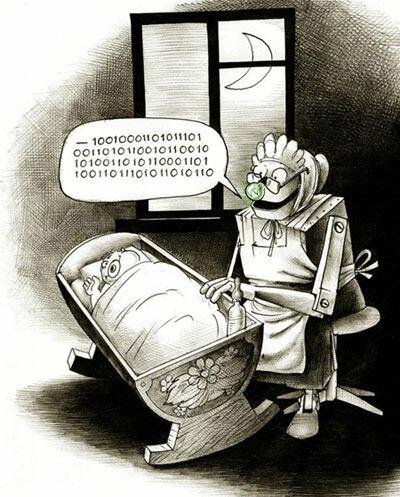

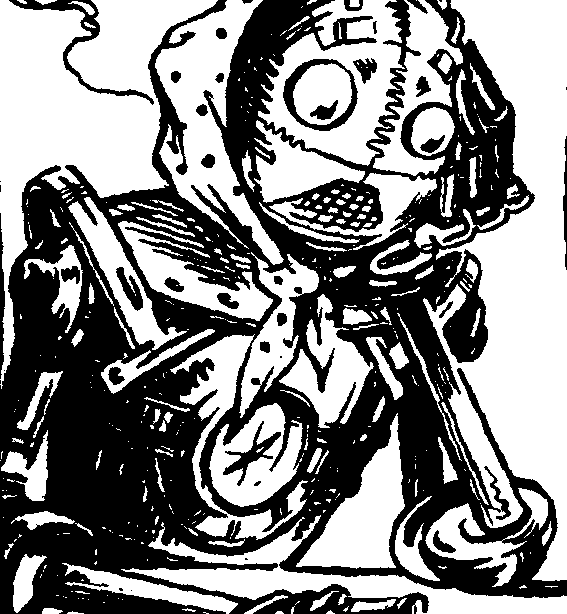
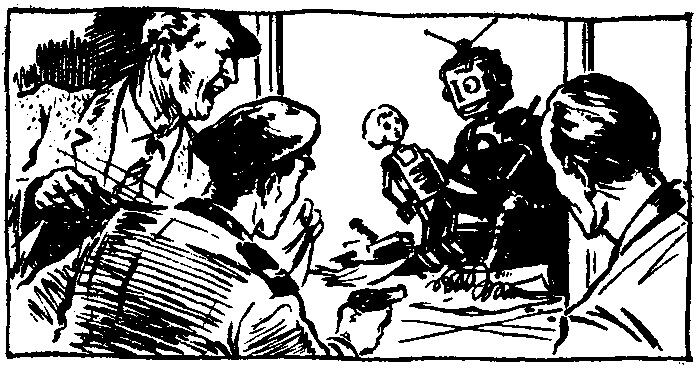
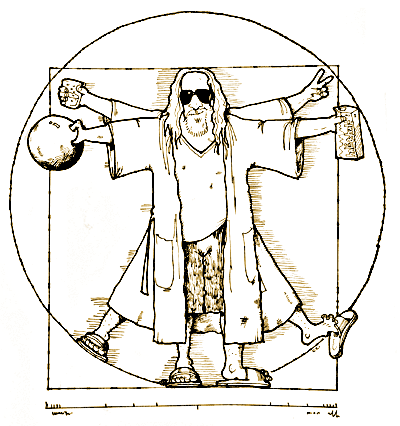
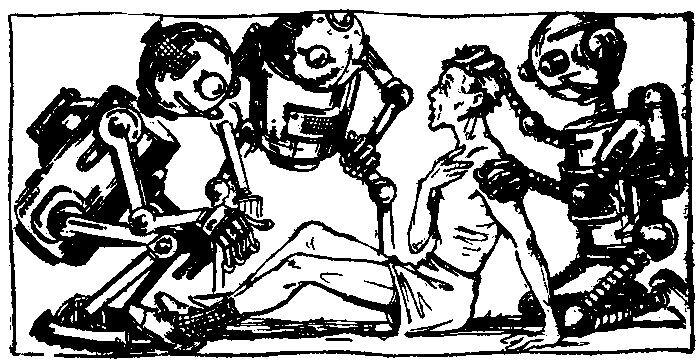
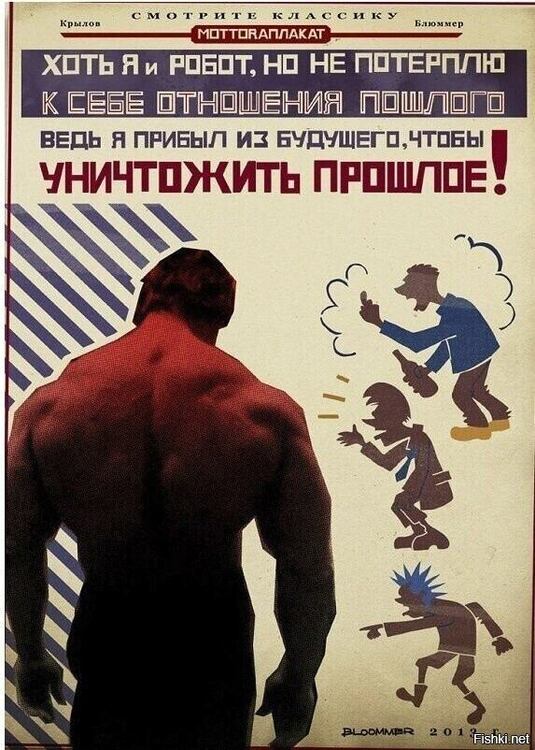
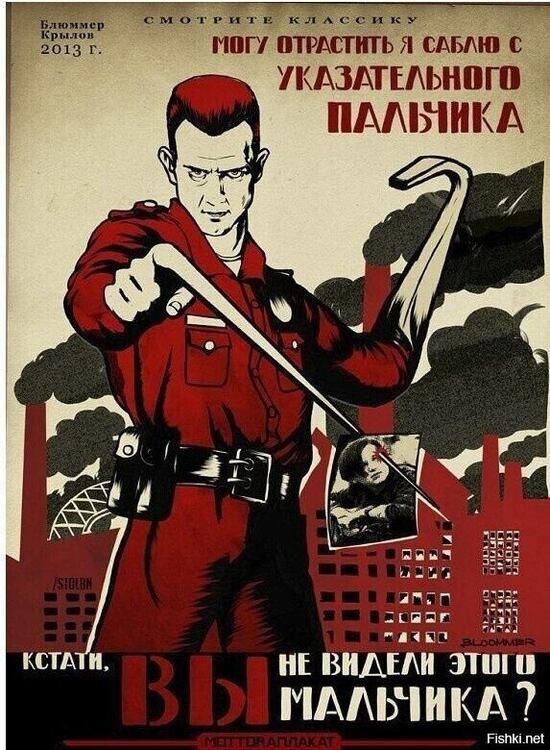
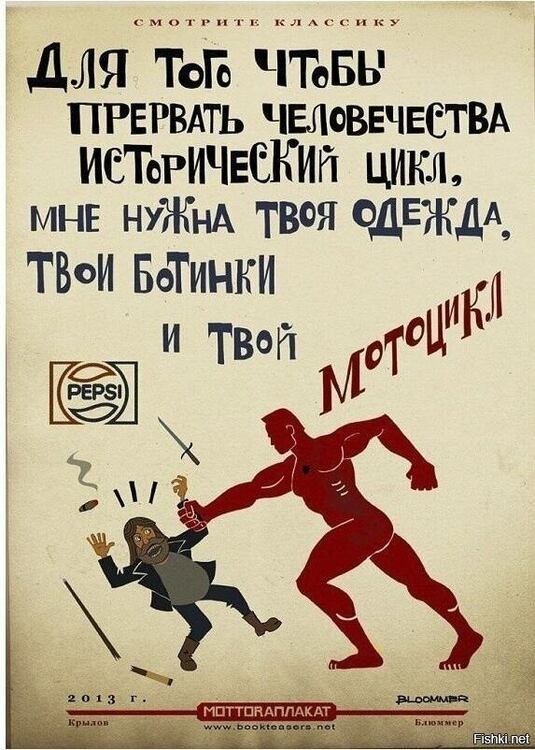
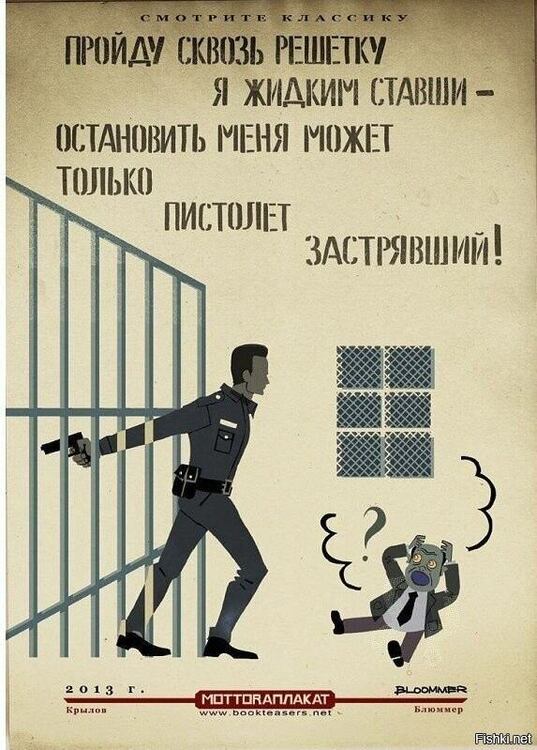



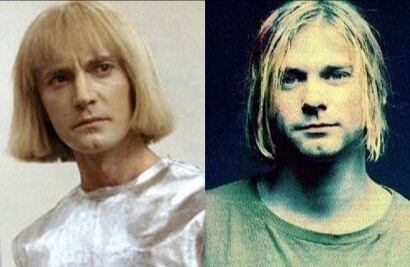






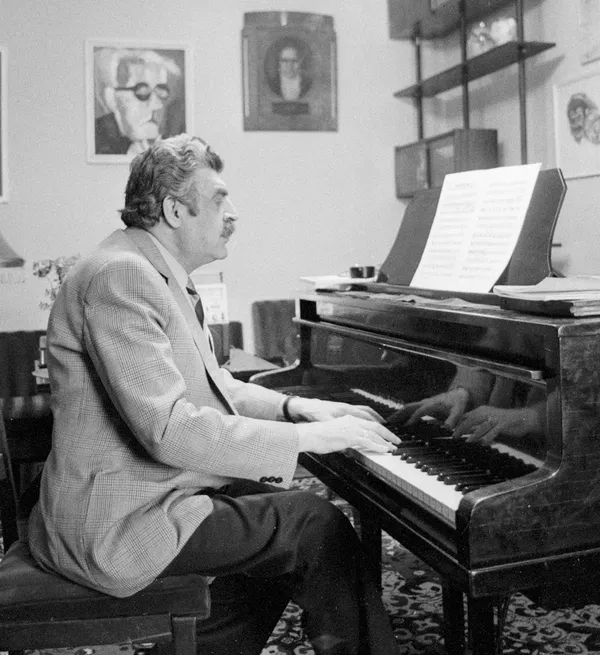
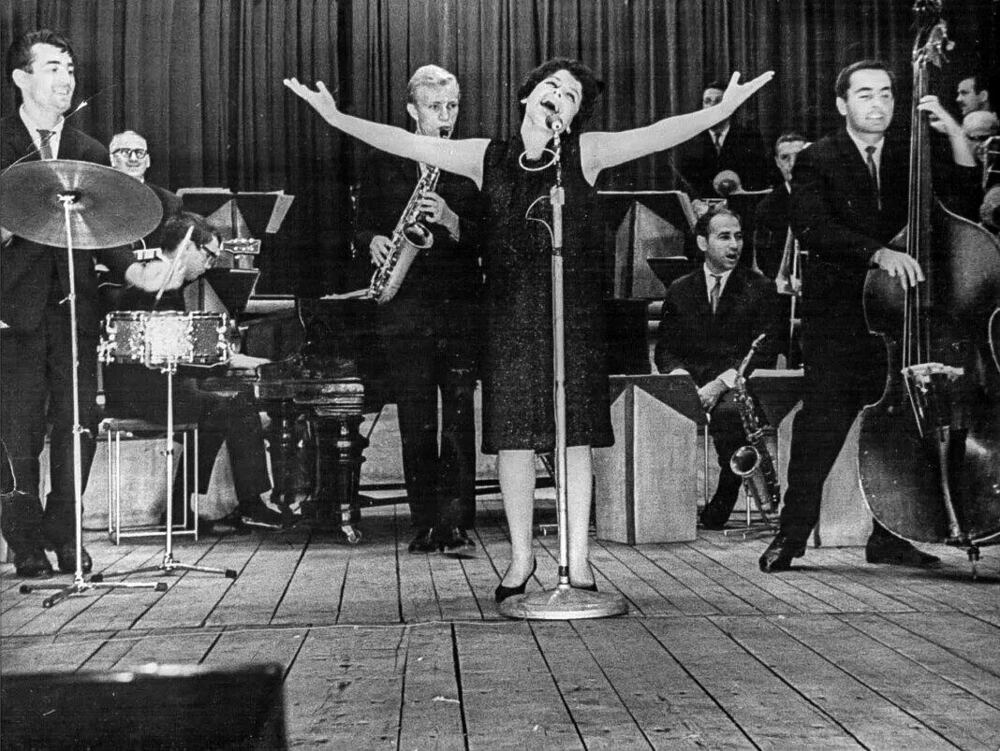

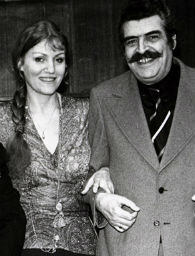




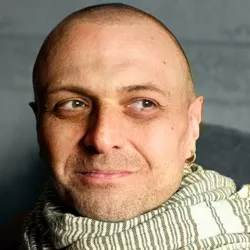

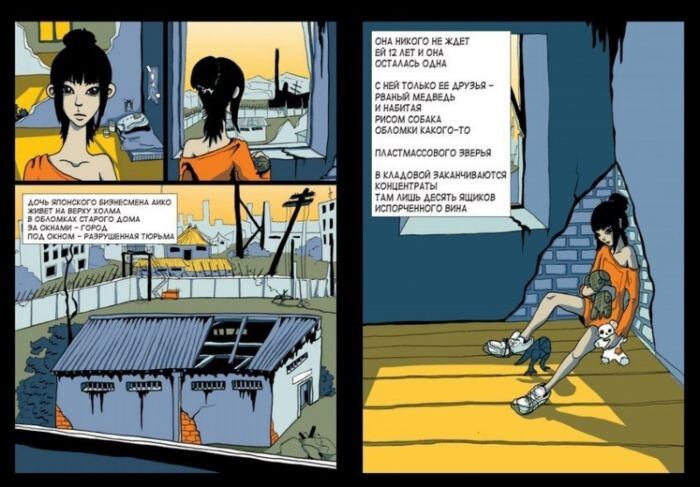
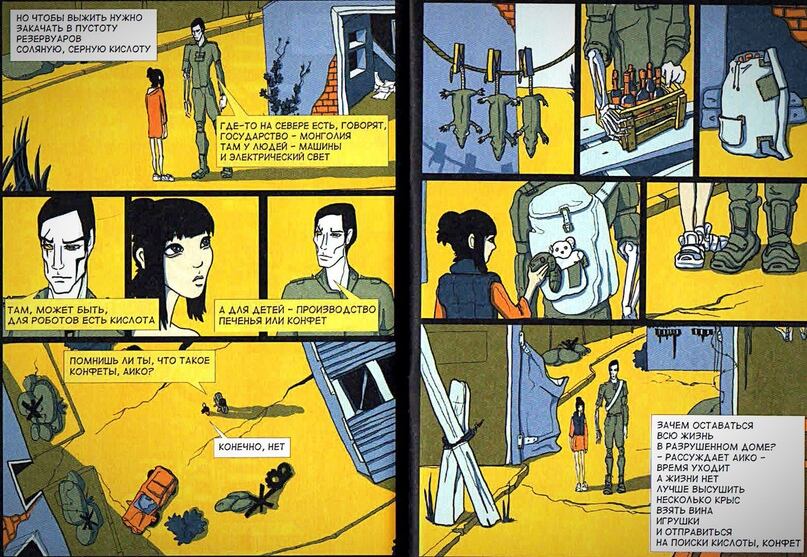




ONCE AGAIN ABOUT ROBOTS JESZCZIE RAZ O ROBOTACH
w Zabawy
Opublikowano · Edytowane przez Andrew Alexandre Owie (wyświetl historię edycji)
I still feel pity of Werther...
Nadal mi szkoda Werthera...
The first law of robotics is to save a human being. Werther did his duty.
Pierwszą zasadą robotyki jest ratowanie człowieka. Werther spełnił swój obowiązek.
Werther is a symbol of the defense of all that is bright and fair!
Werther jest symbolem obrony wszystkiego, co jasne i sprawiedliwe!
A worthy act by a robotic personality.
Godny czyn robotycznej osobowości.
Goethe must have cried when he found out into what his young Werther had been turned.
Goethe musiał płakać, gdy dowiedział się, w co przemienił się jego młody Werther.
He was subsequently repaired and became a good Terminator.
Następnie został naprawiony i stał się dobrym Terminatorem.
Russian Arnie! Rosyjski Arnie!